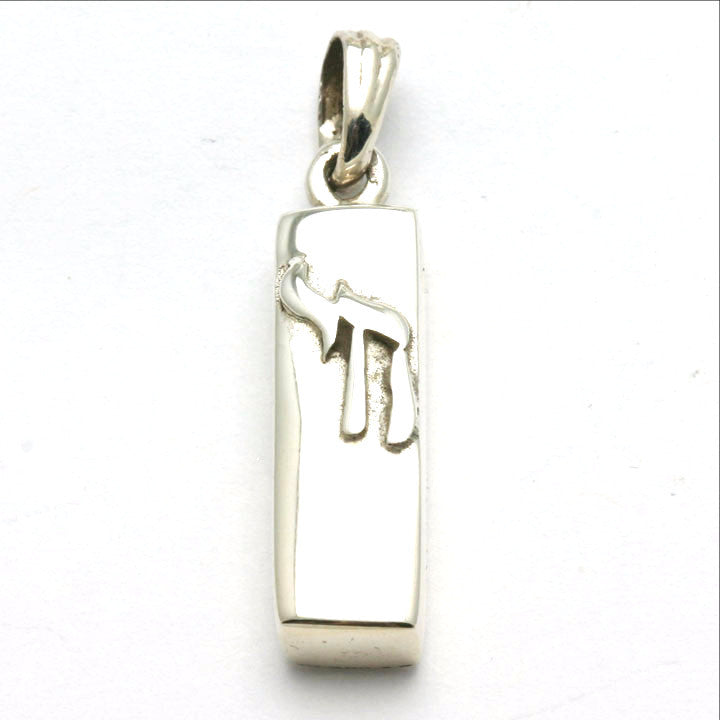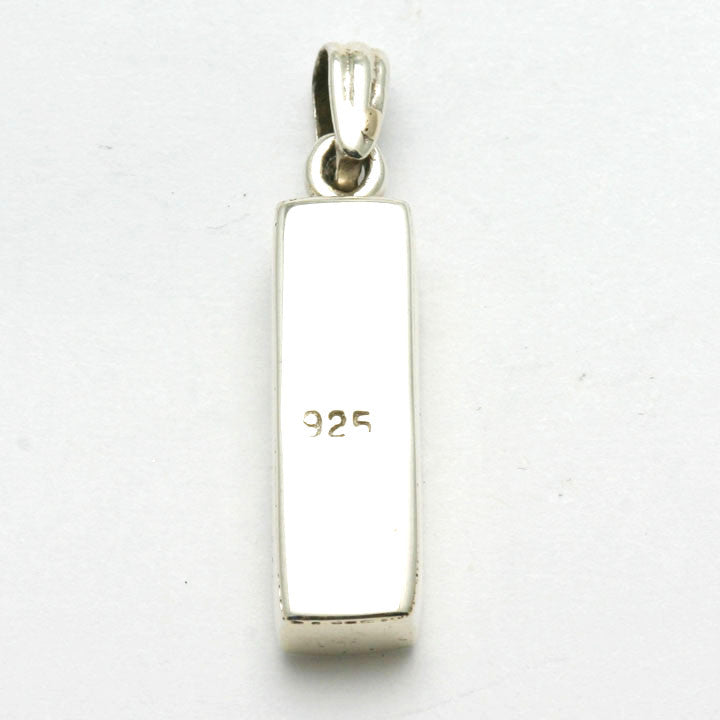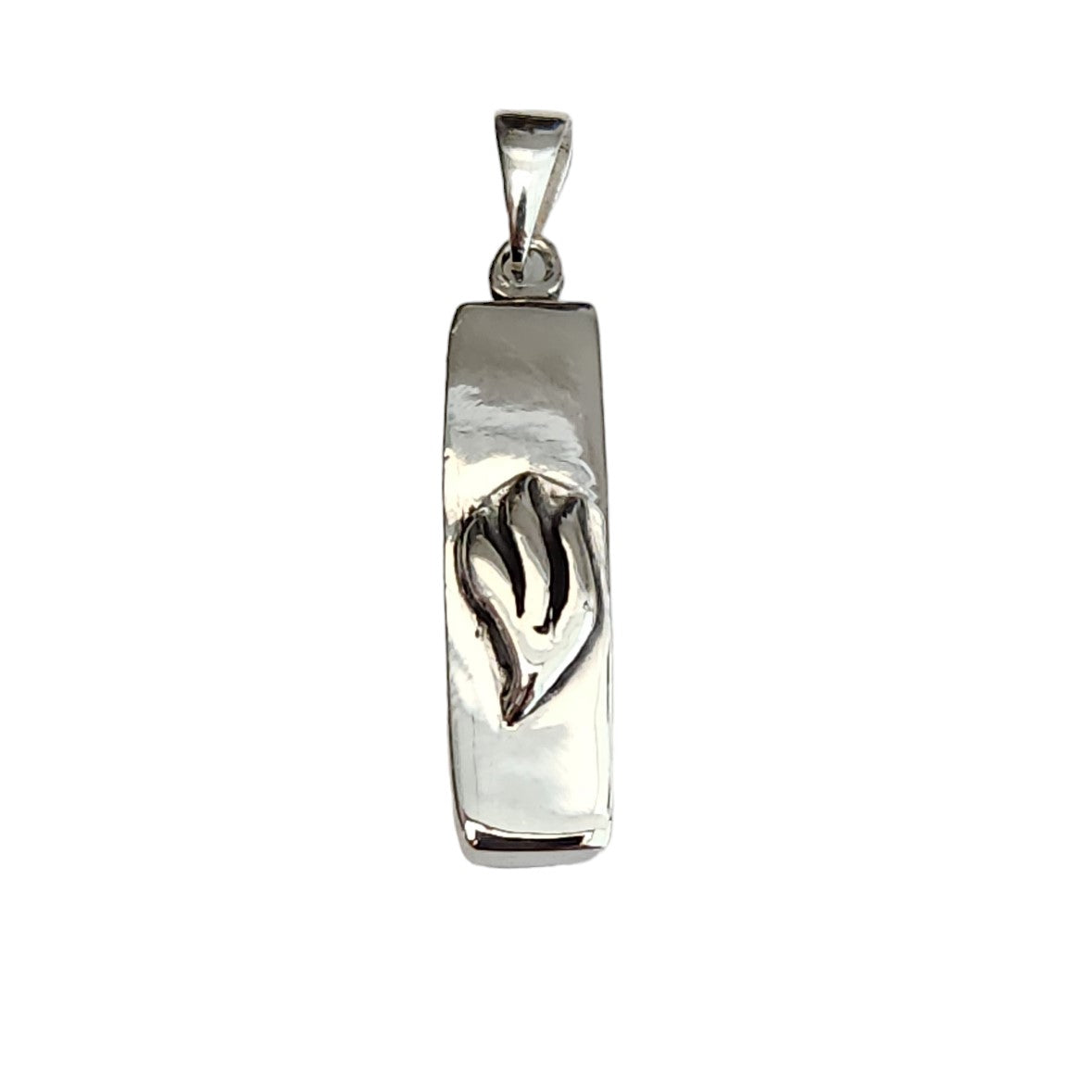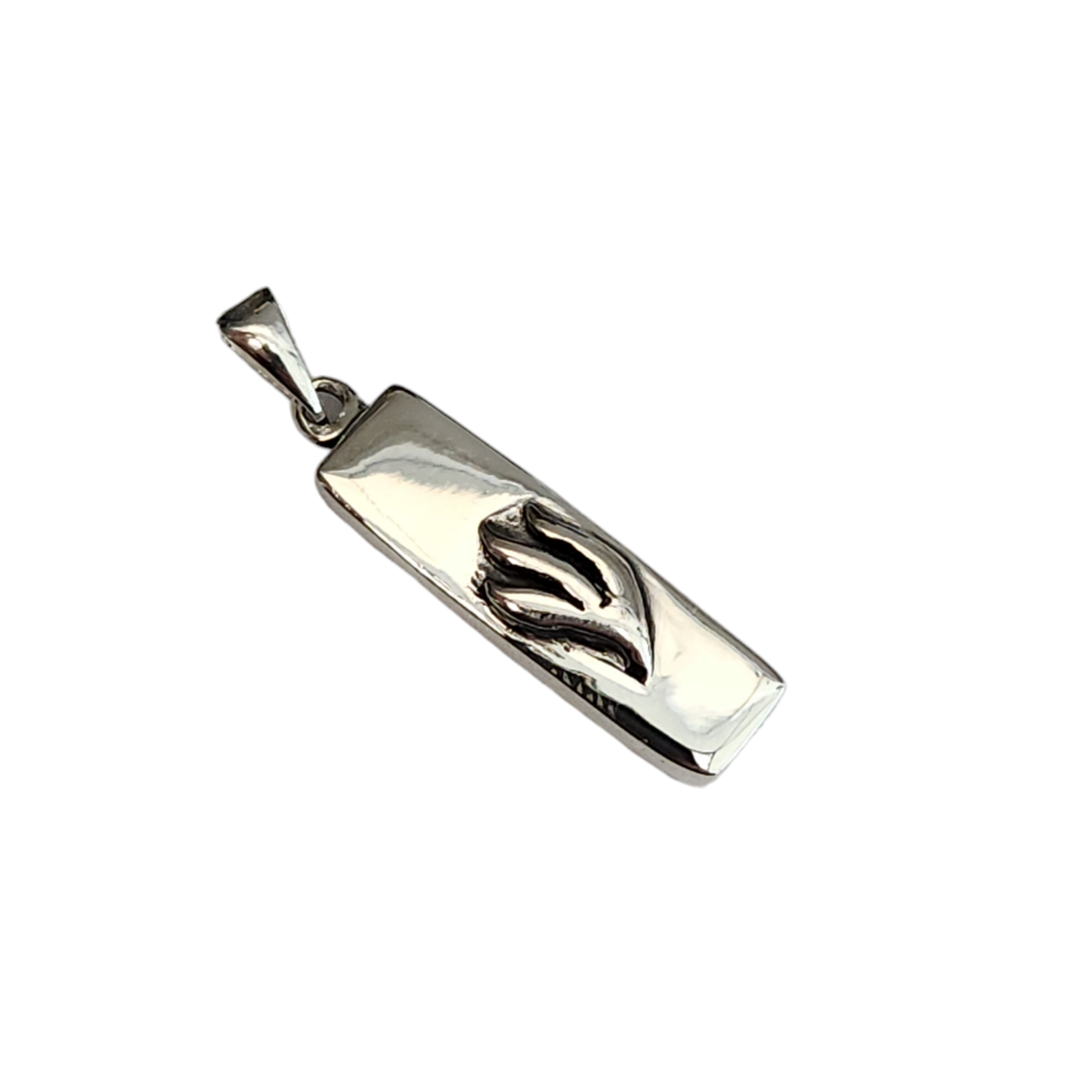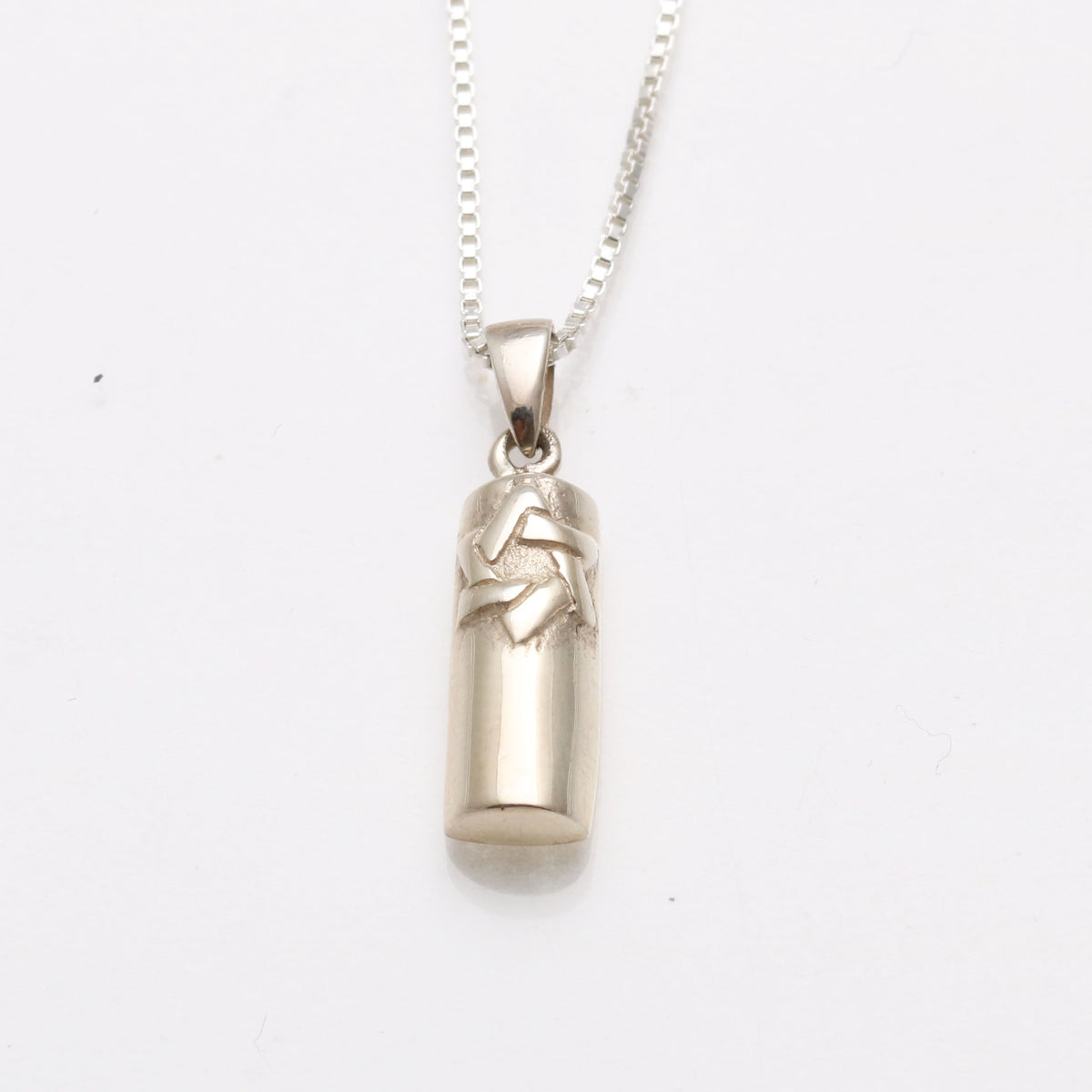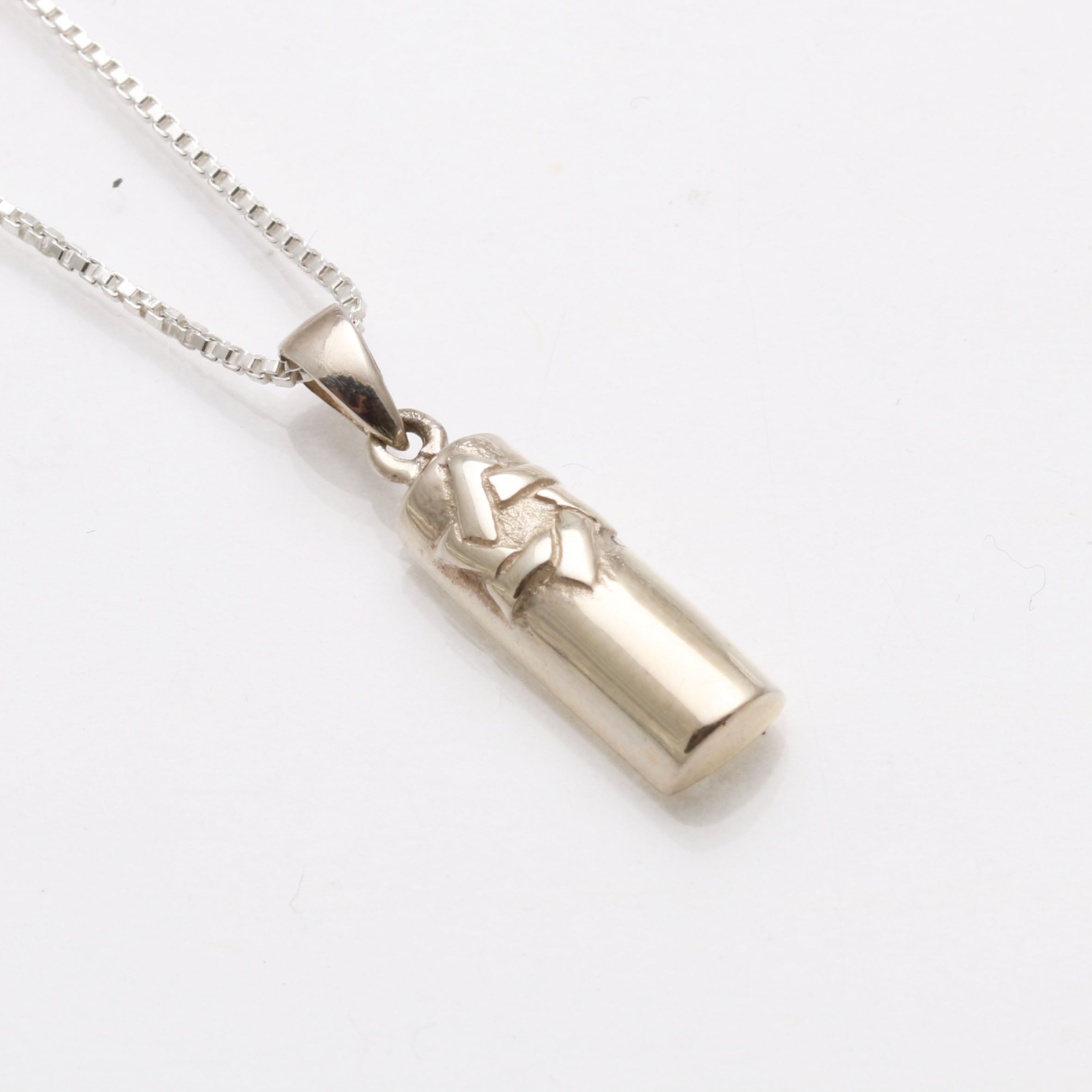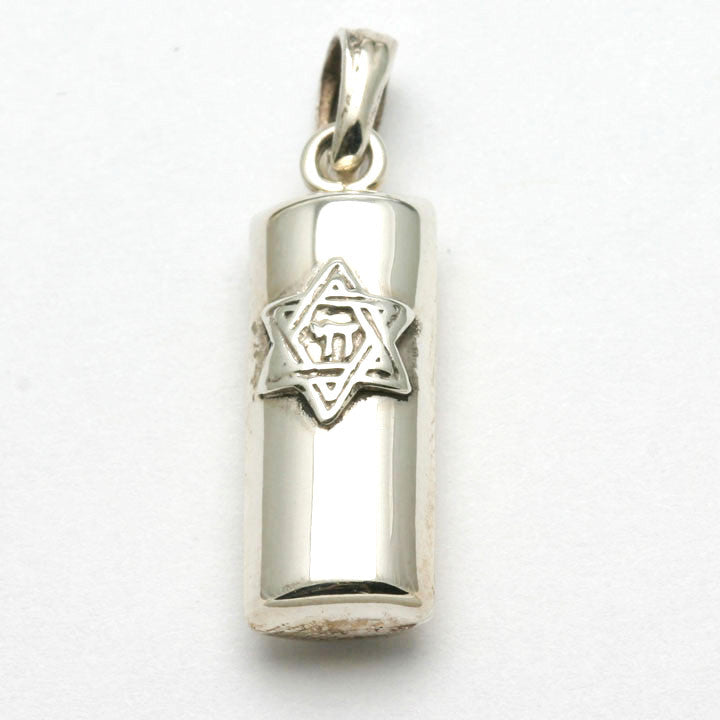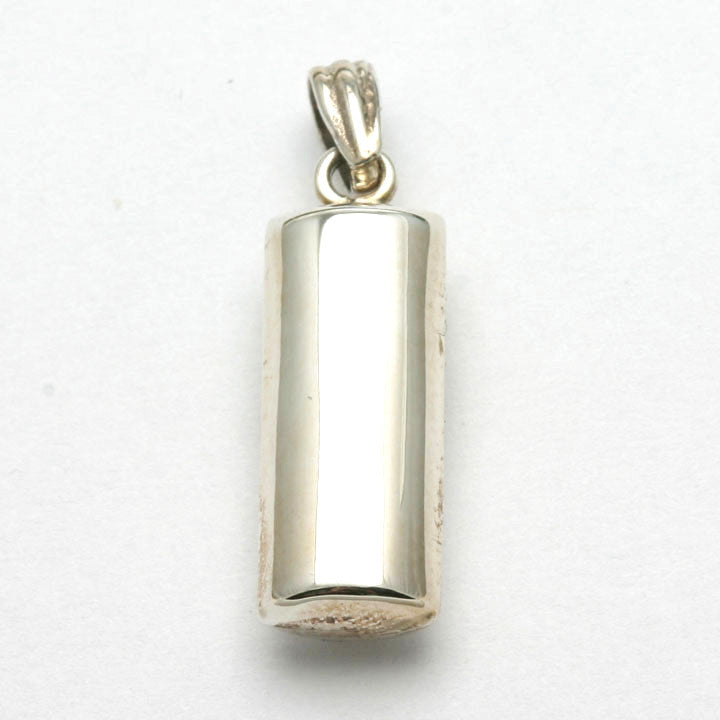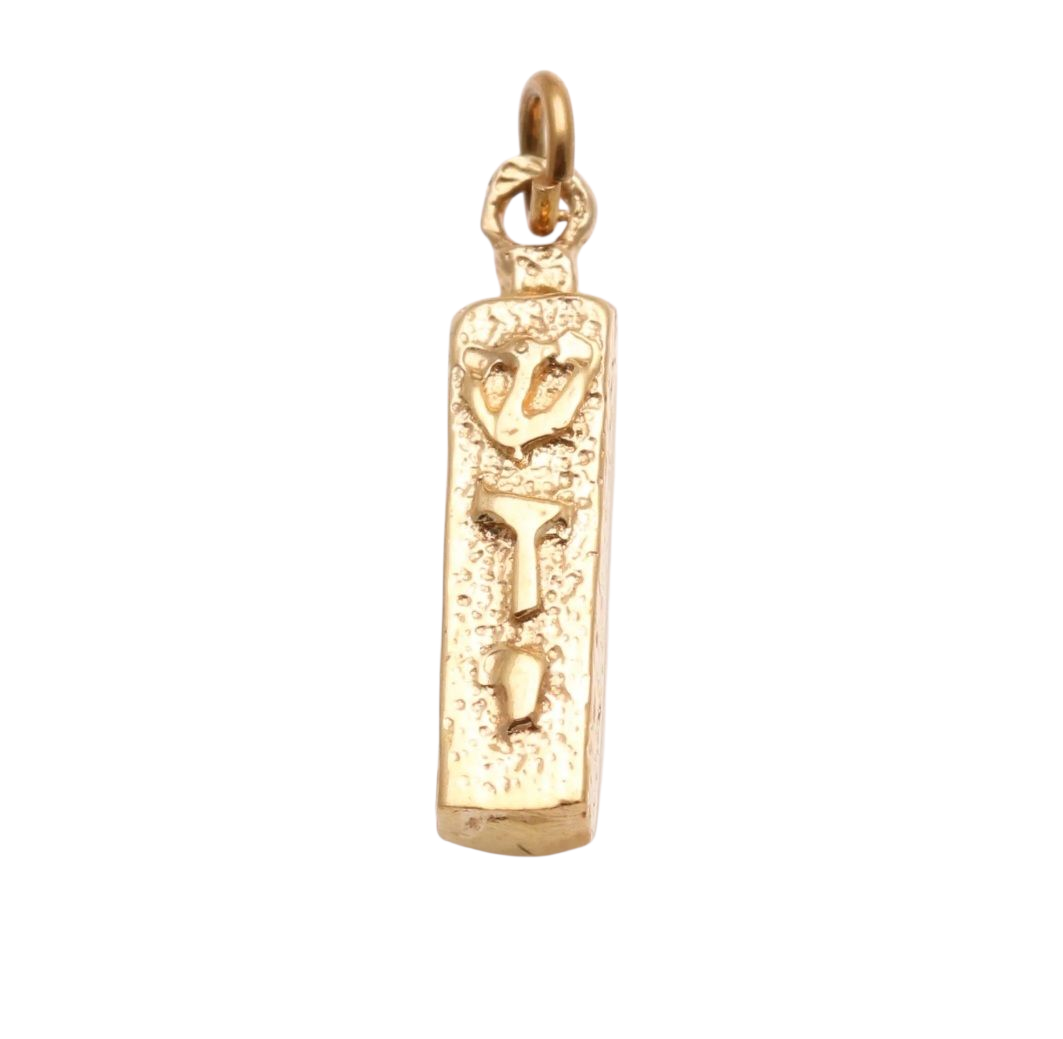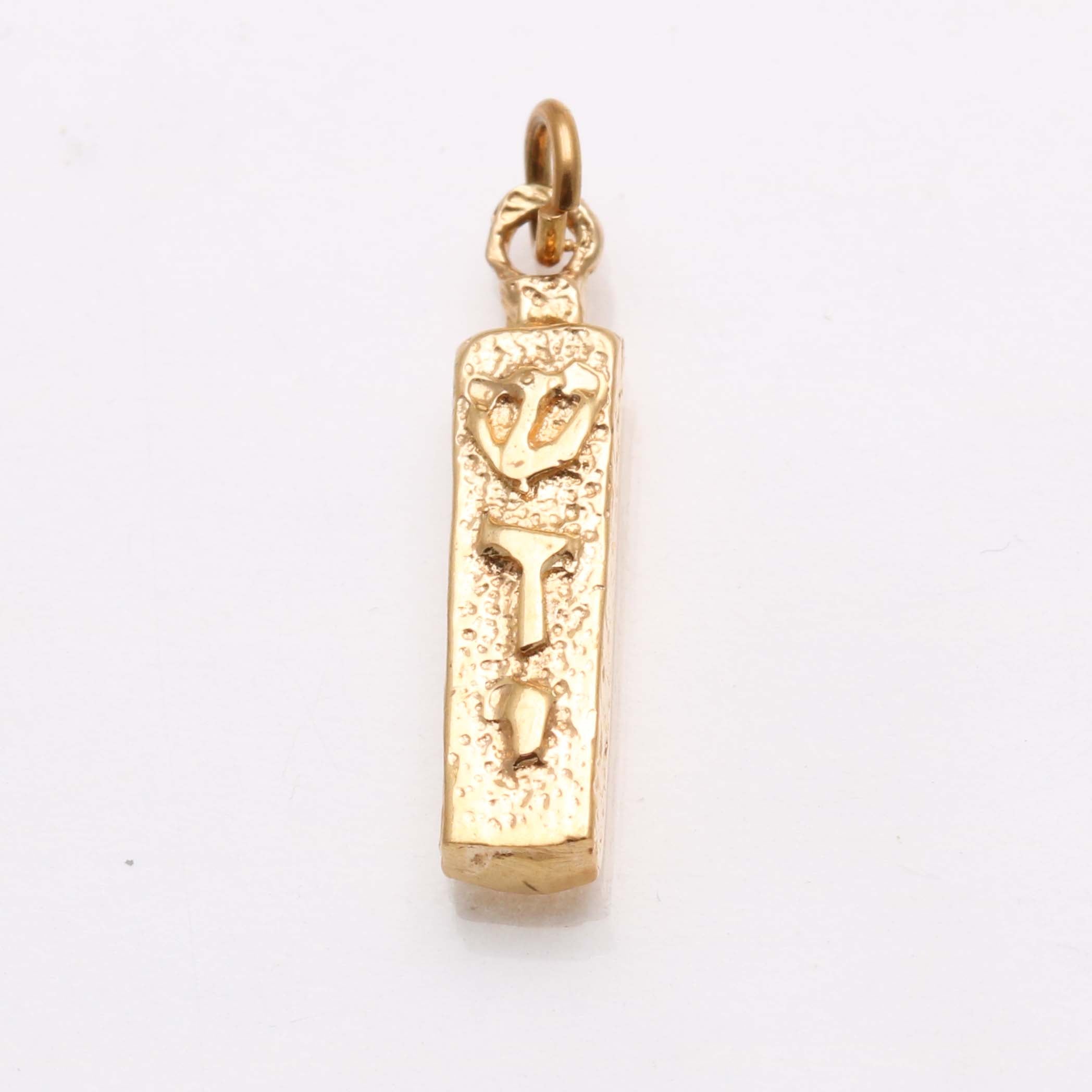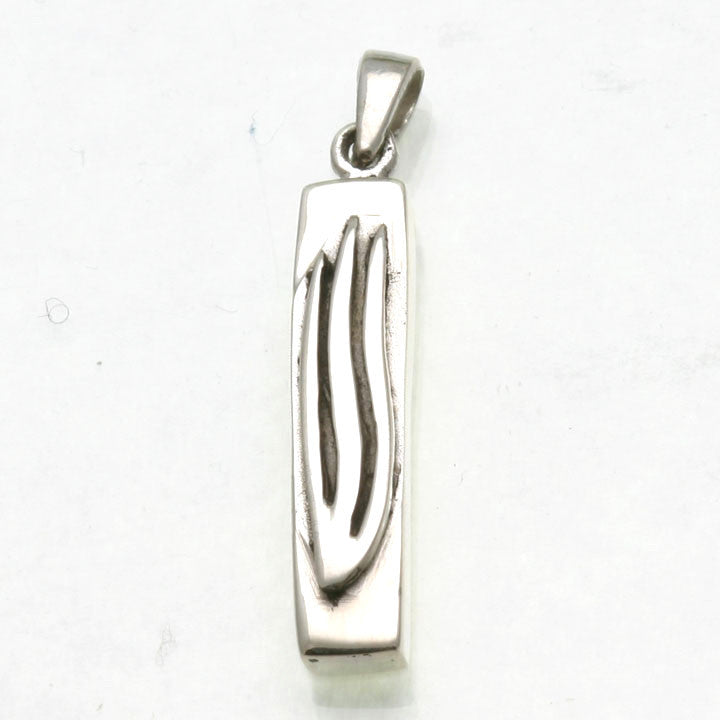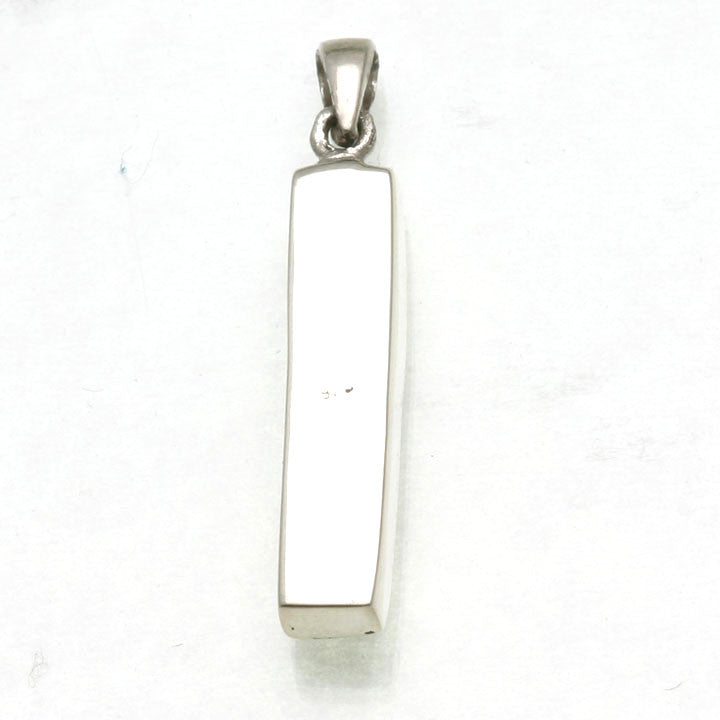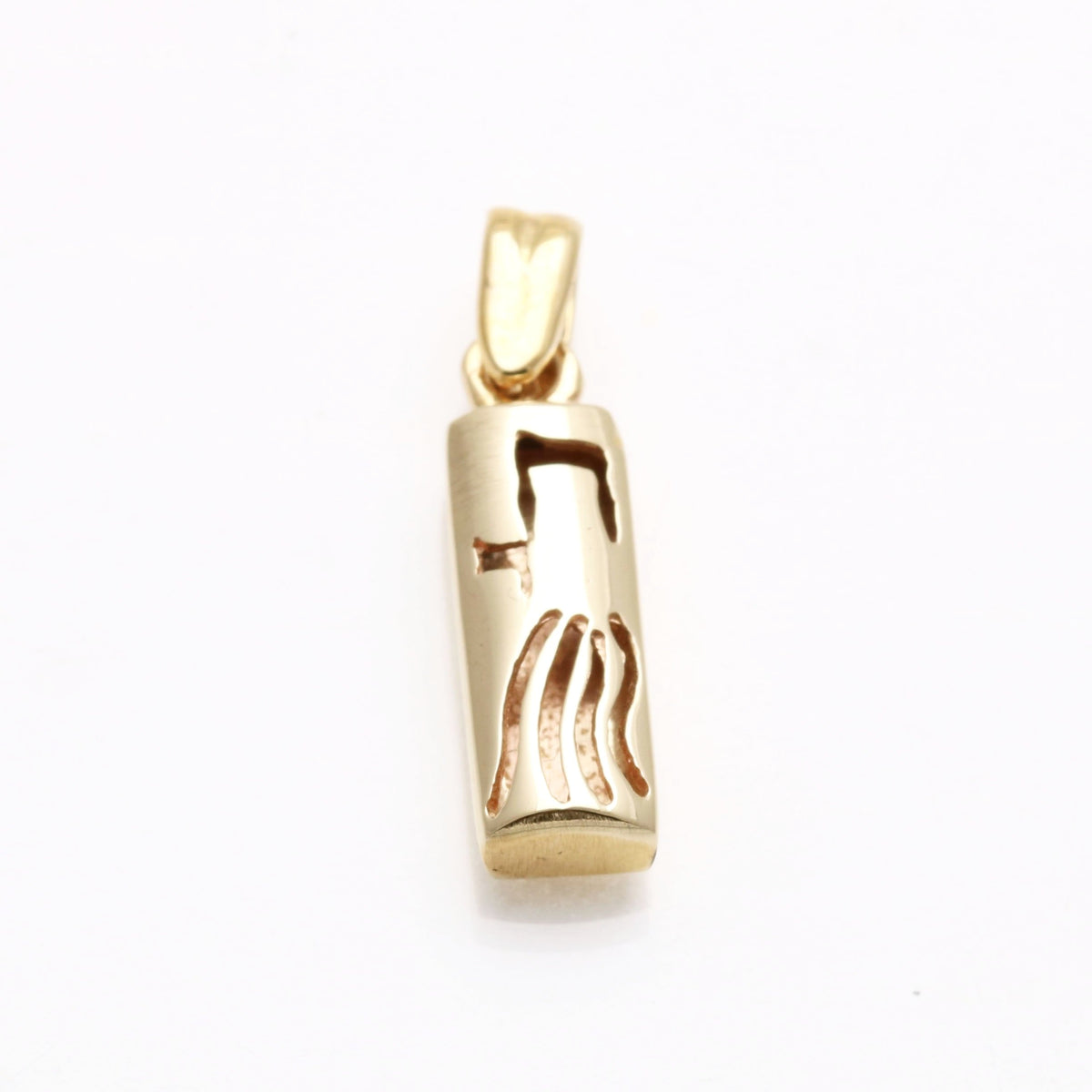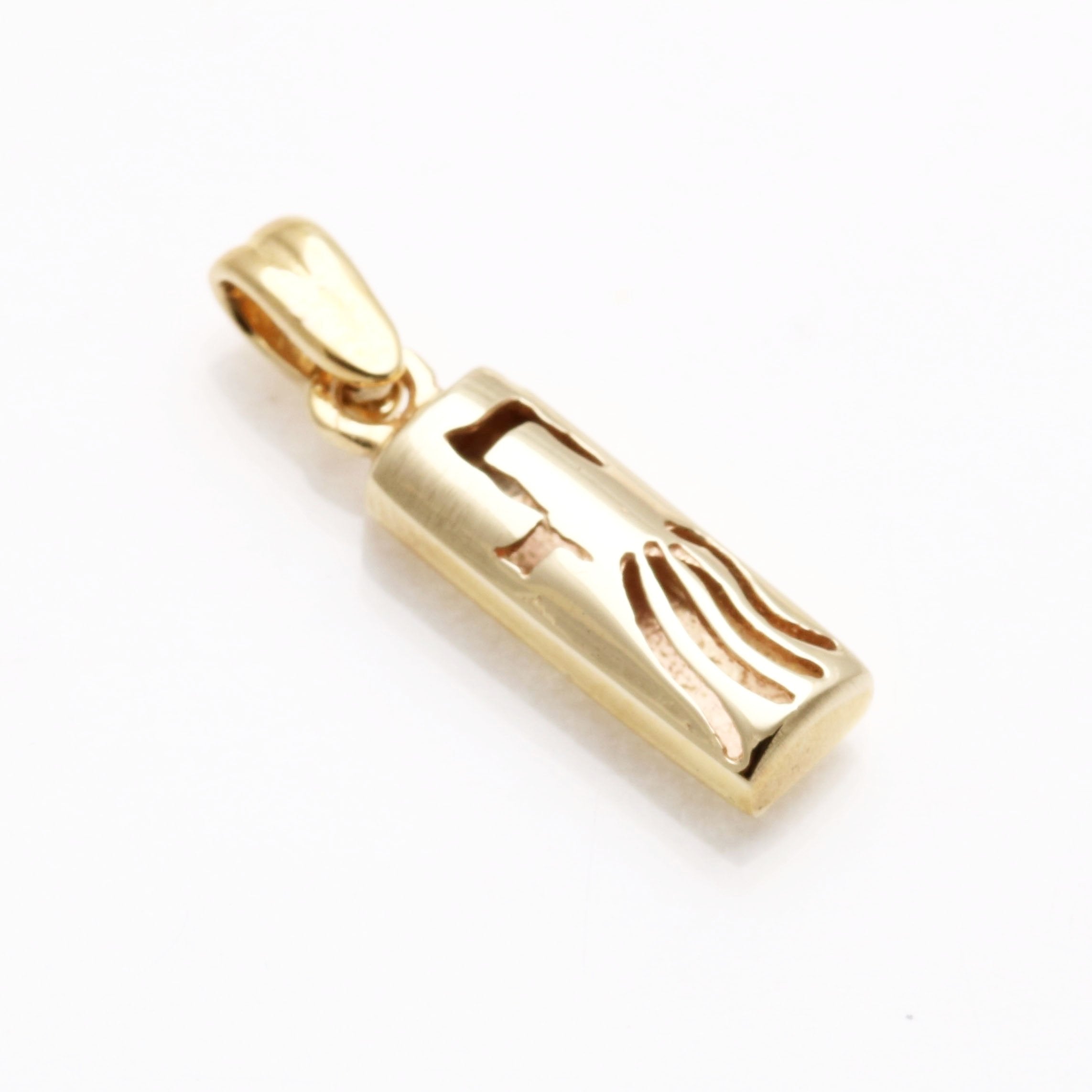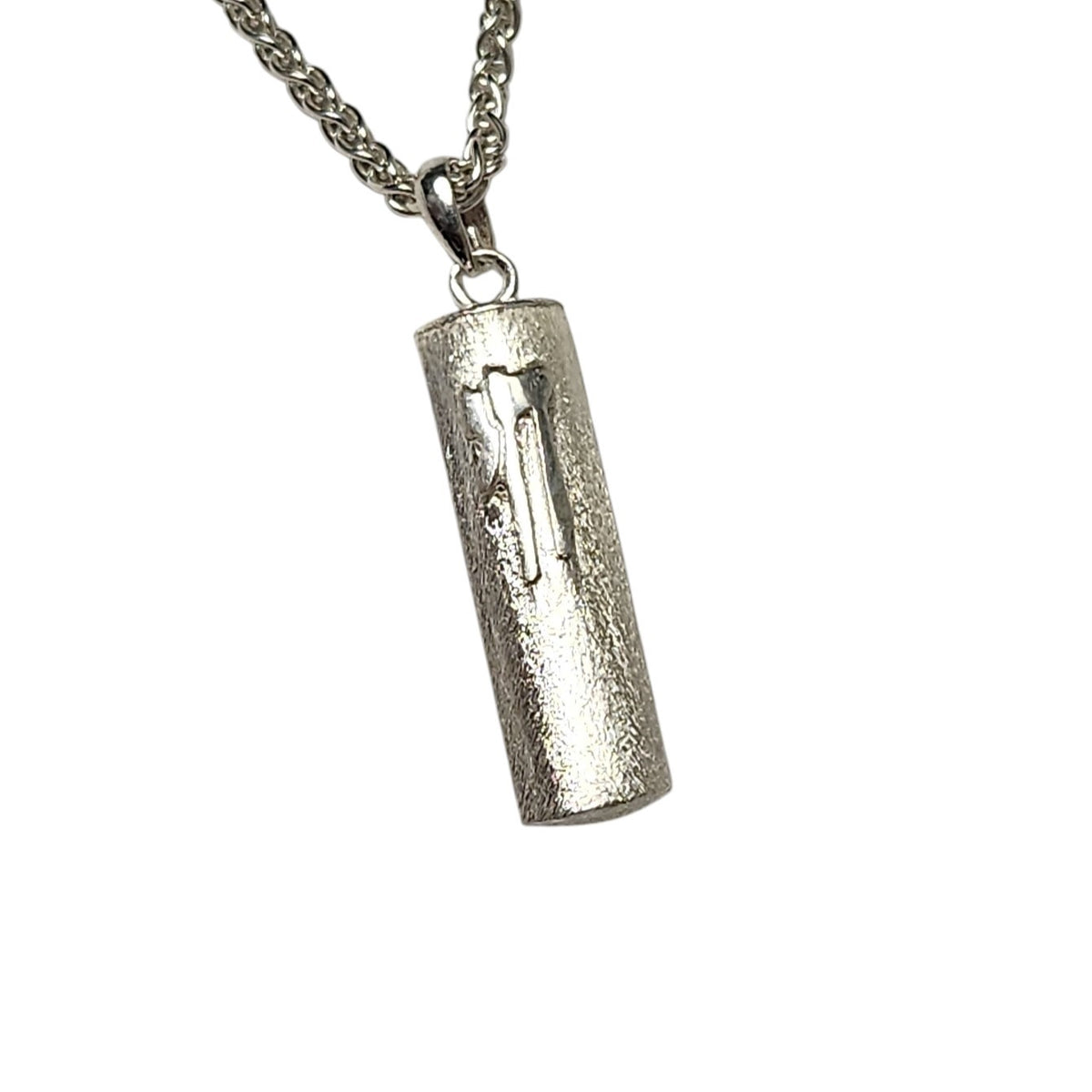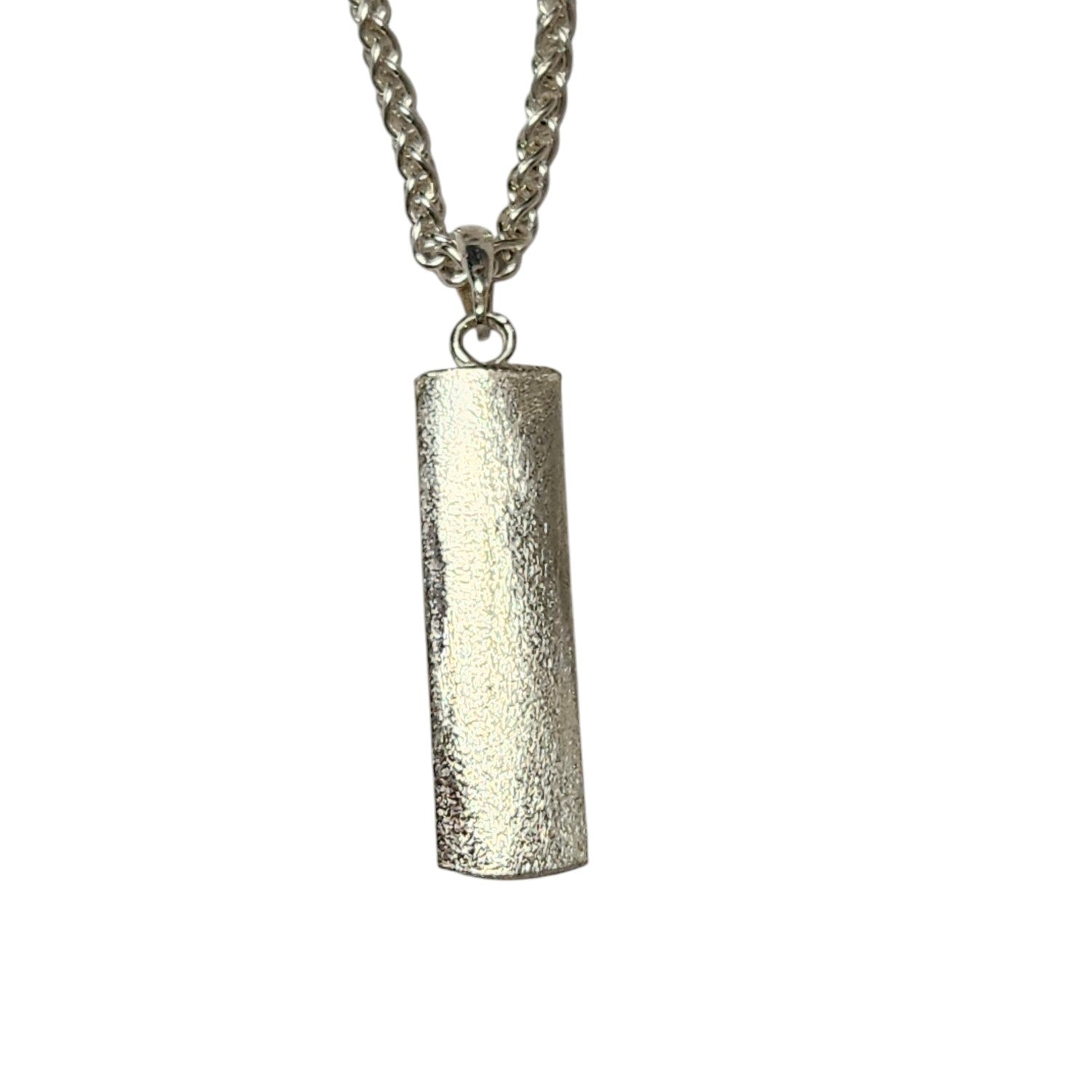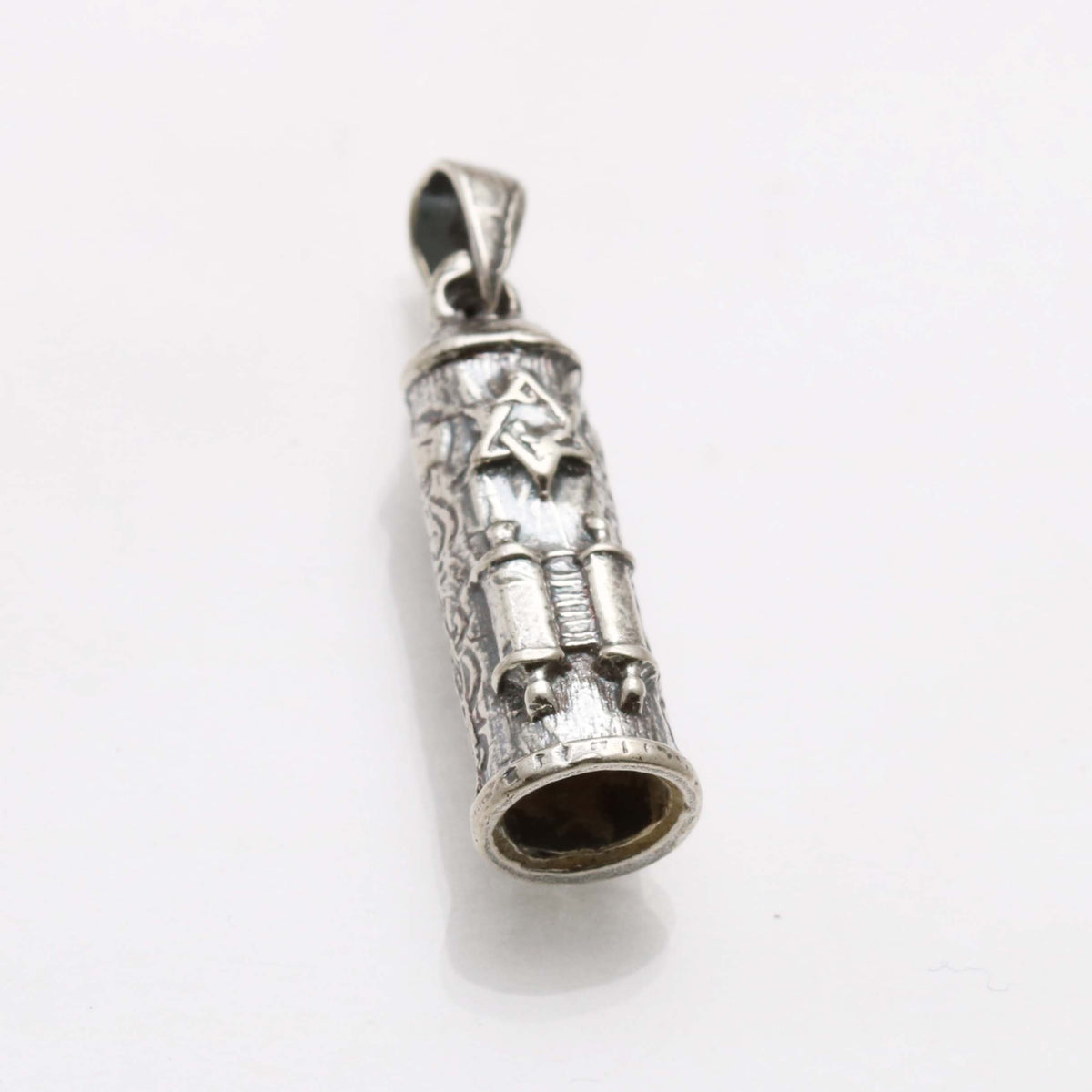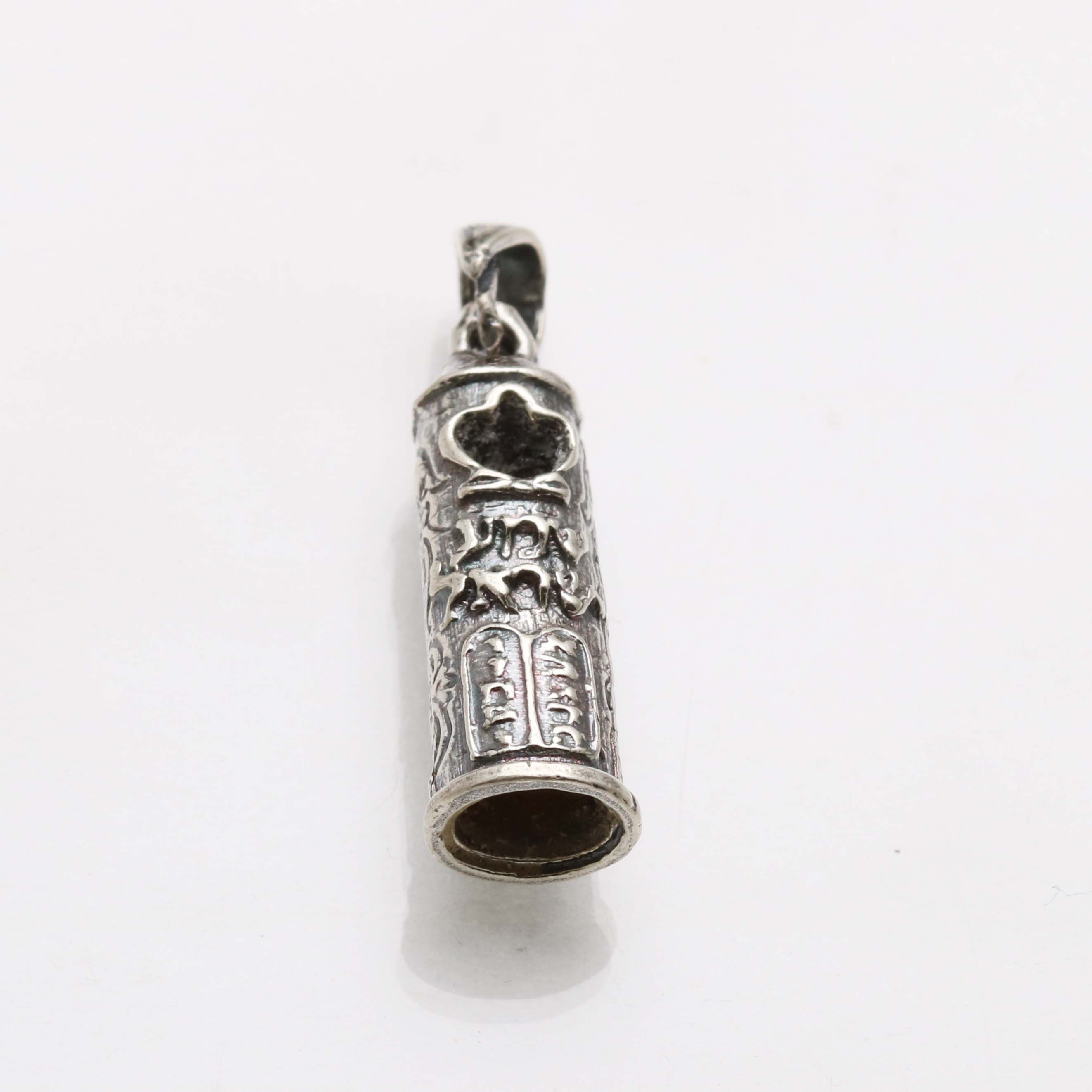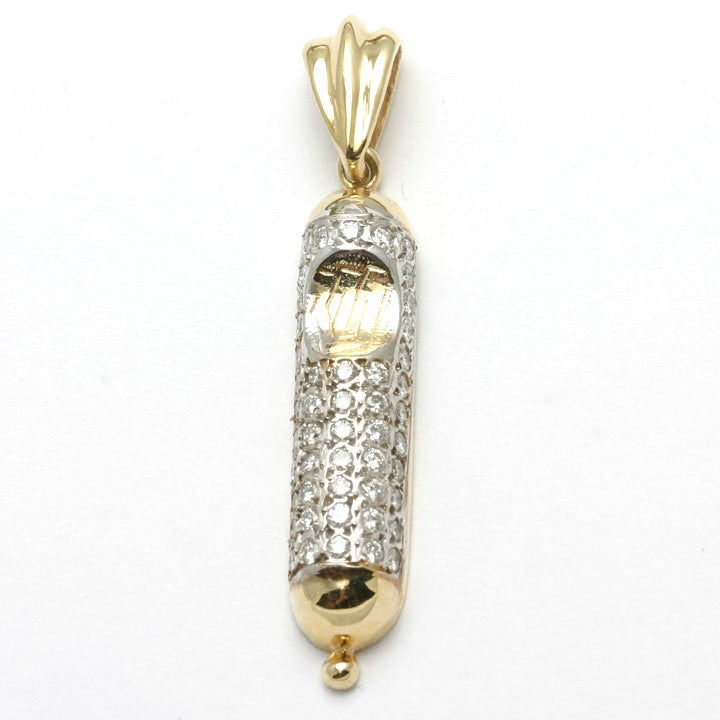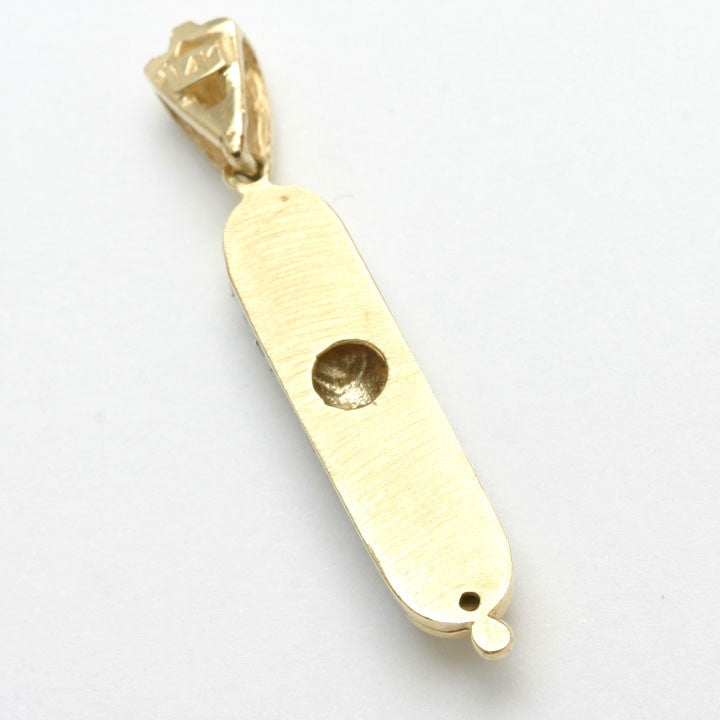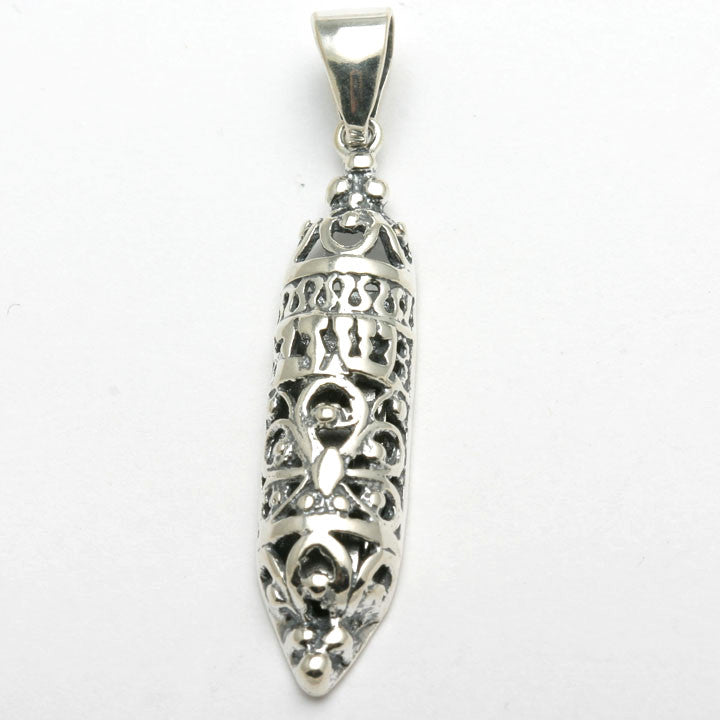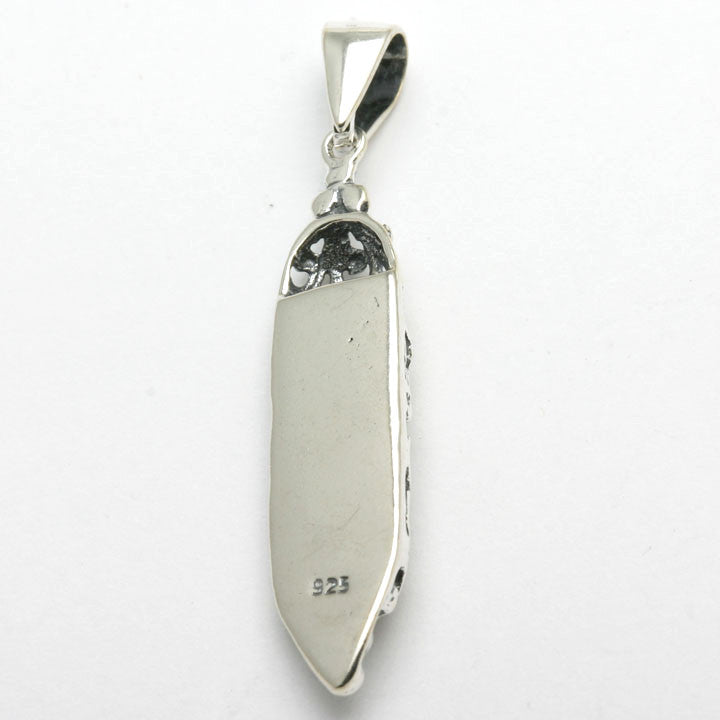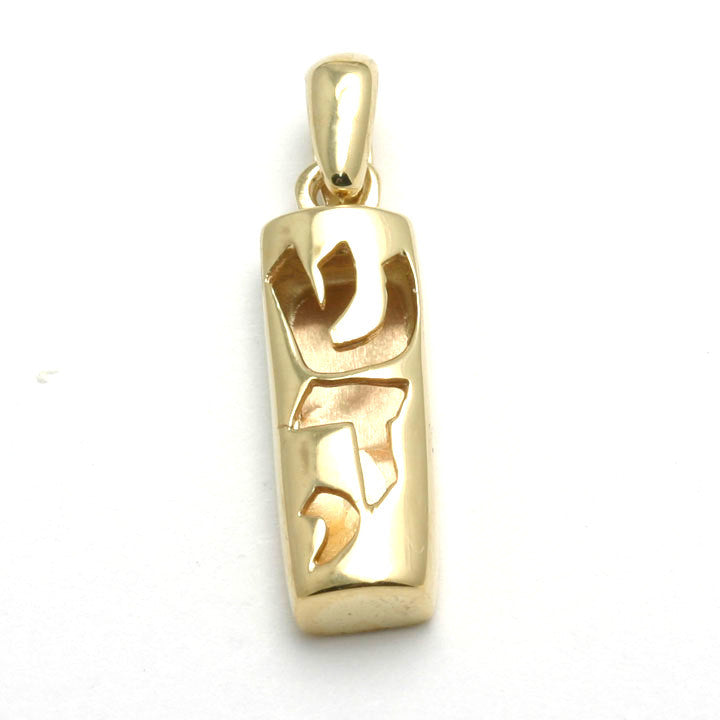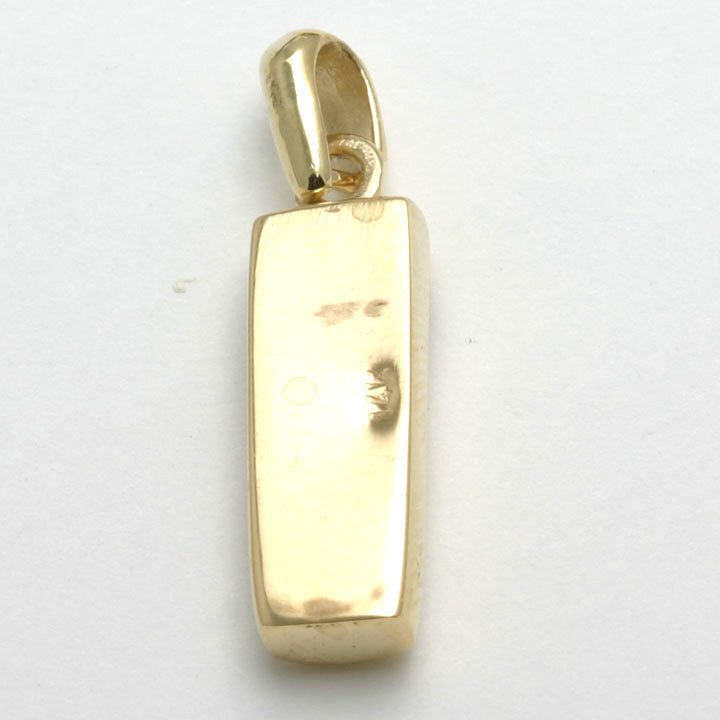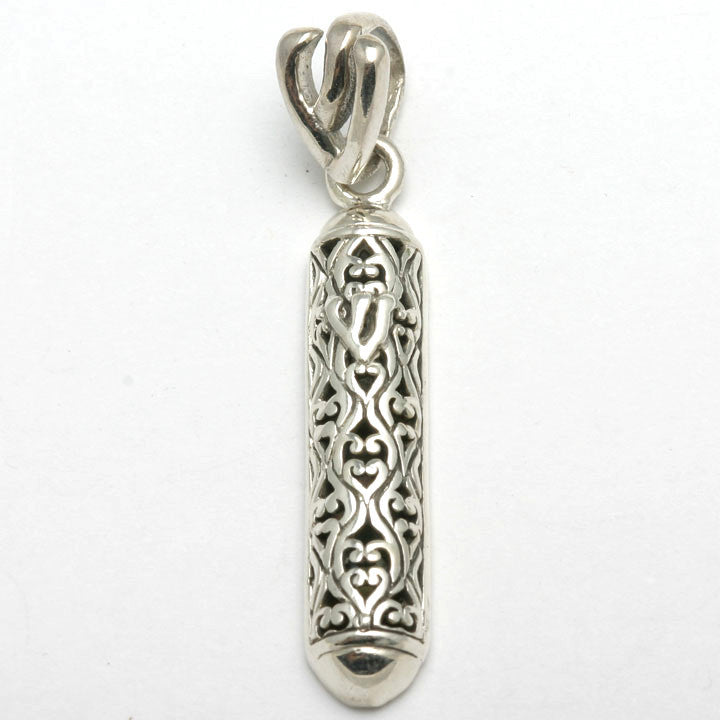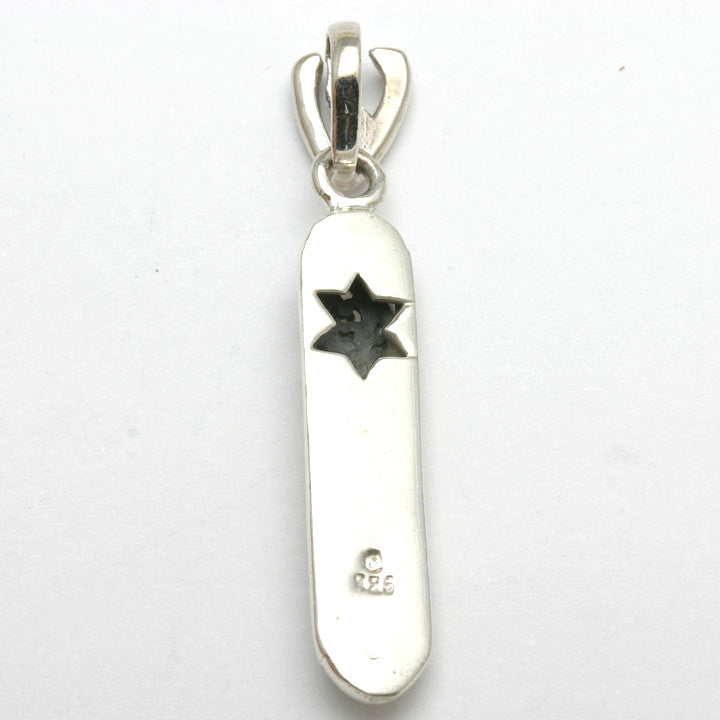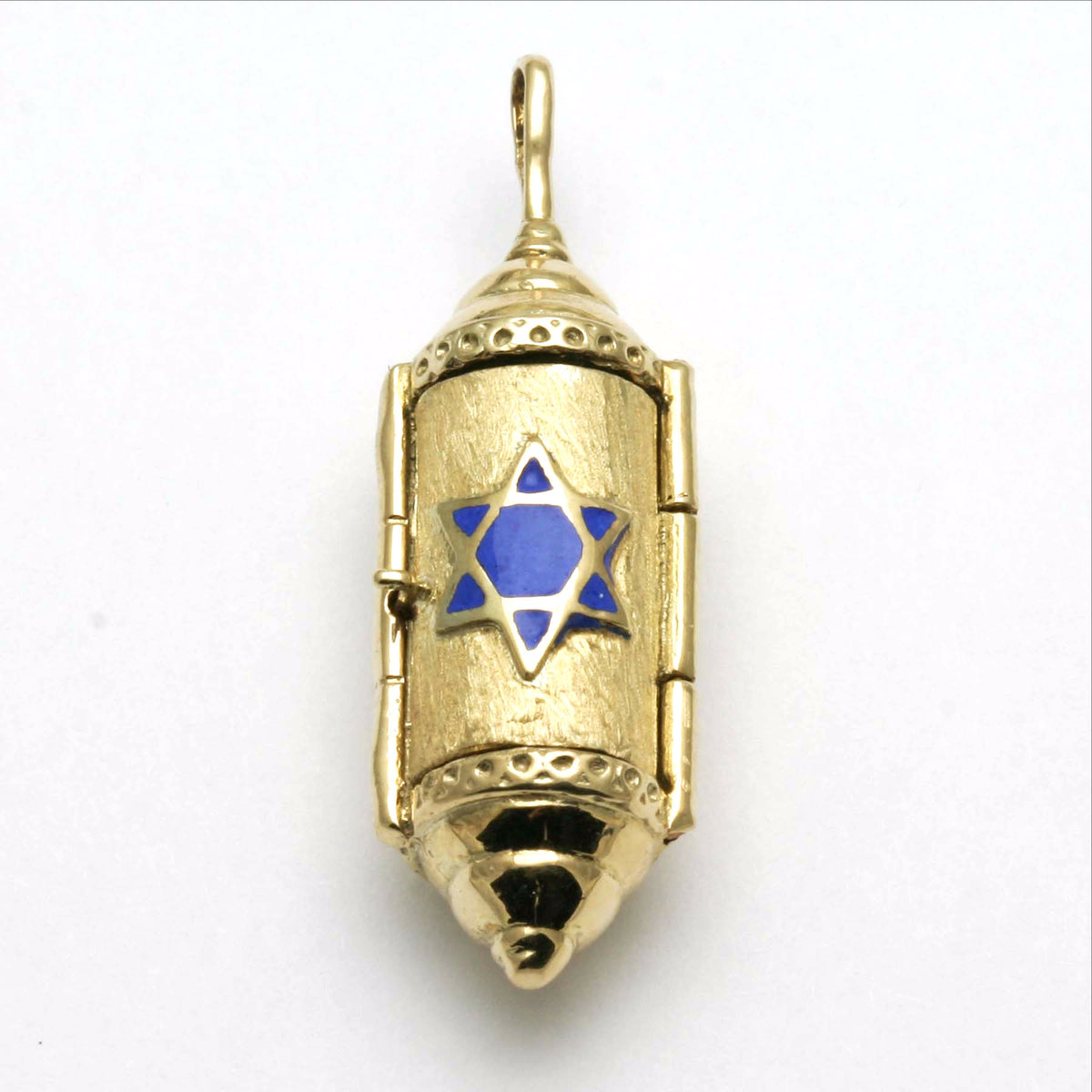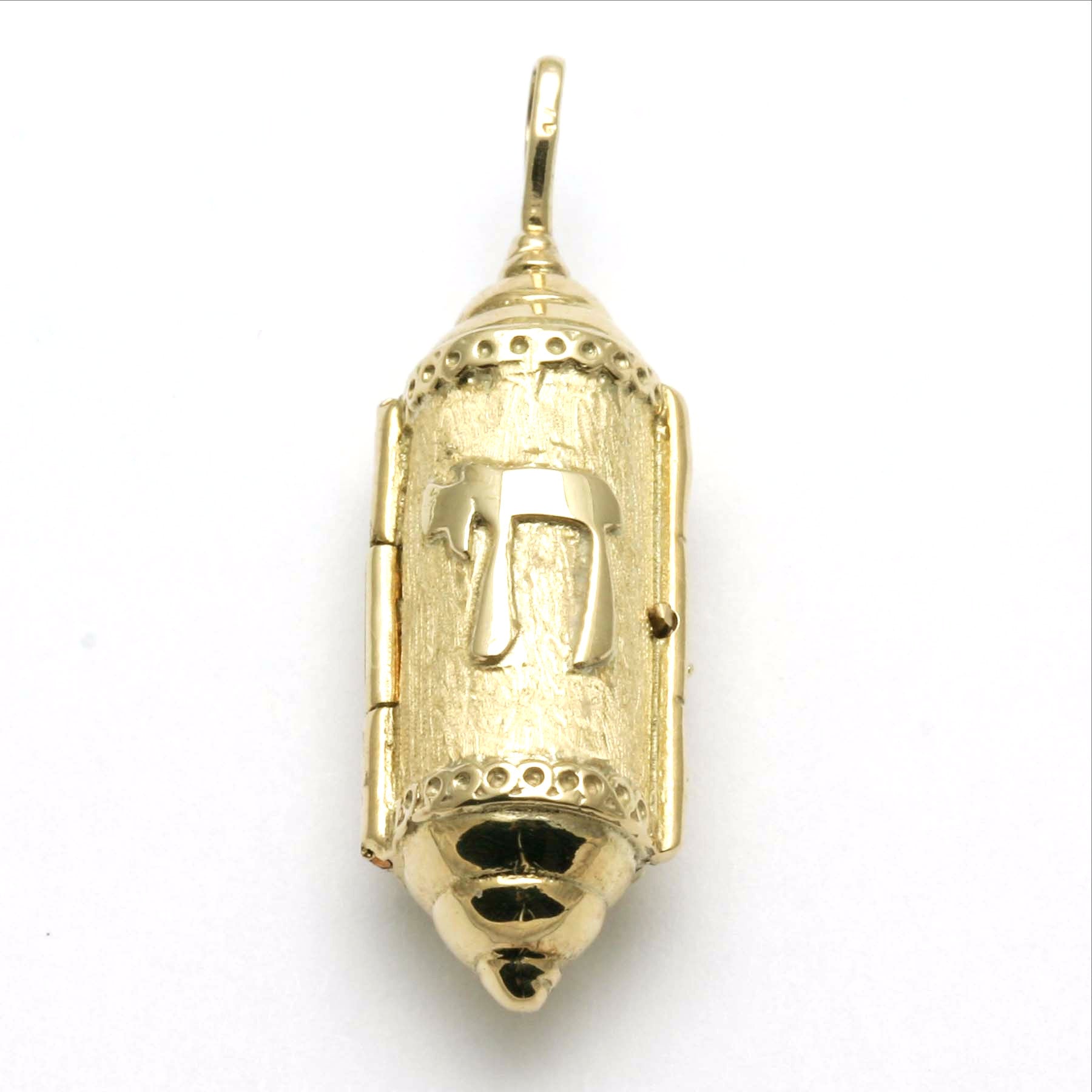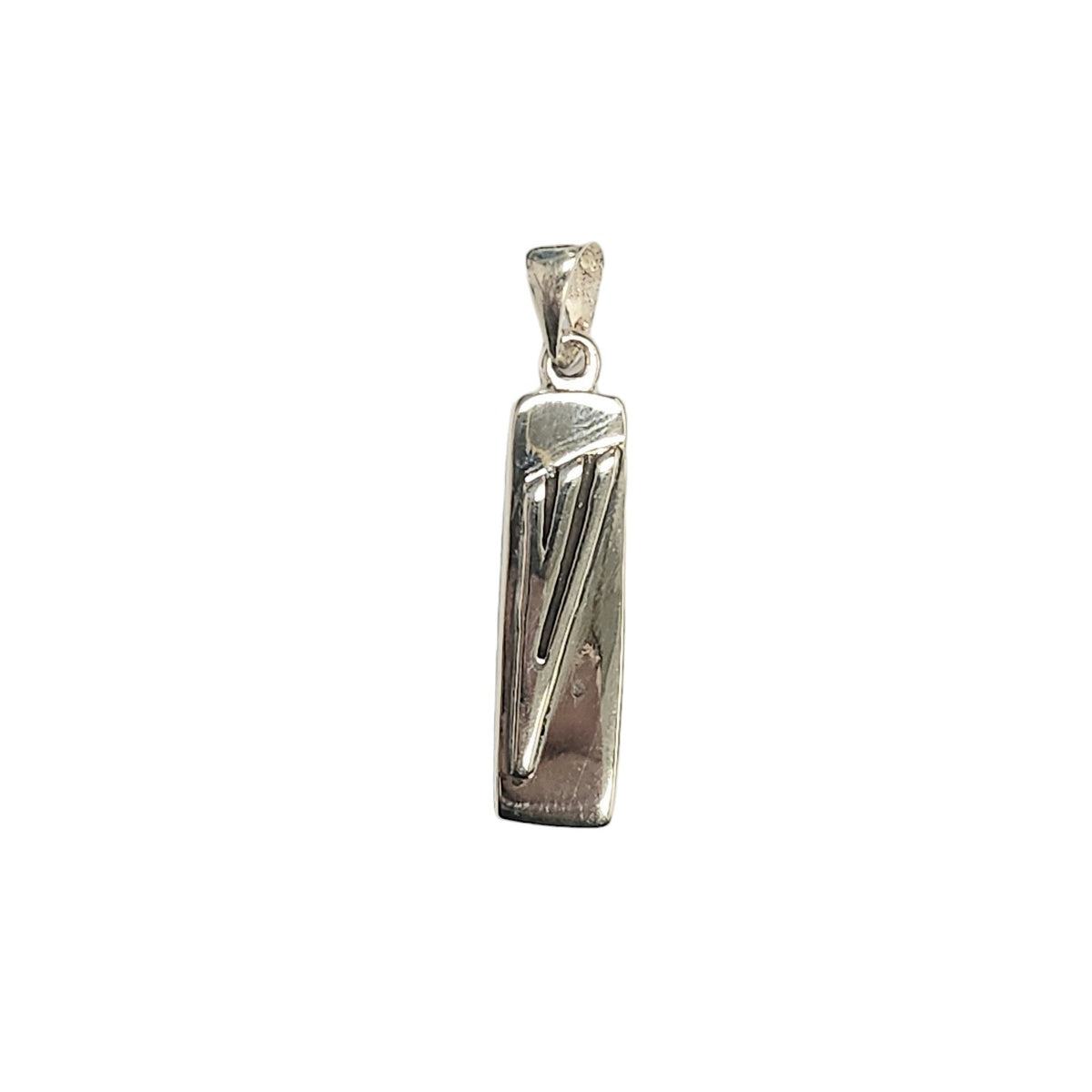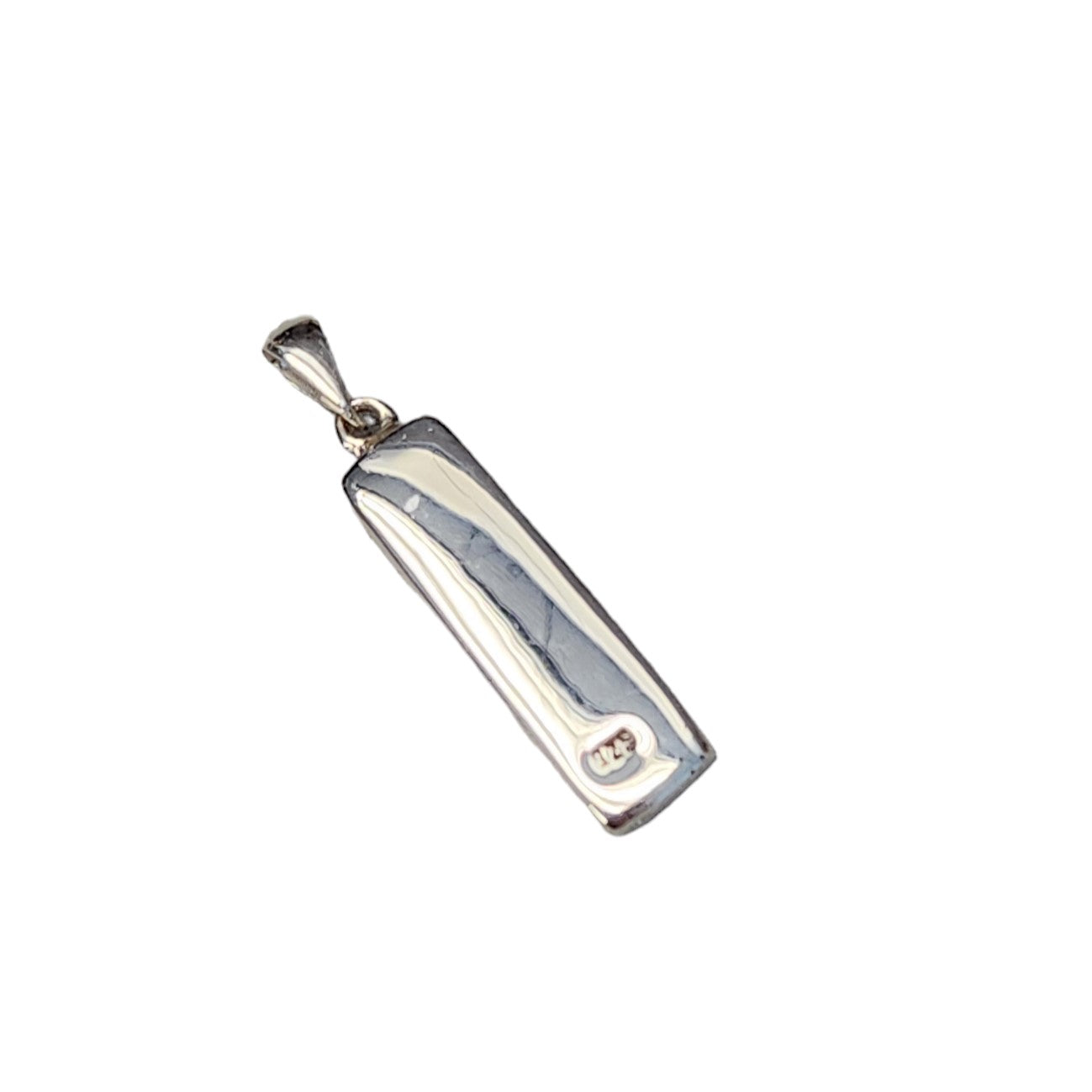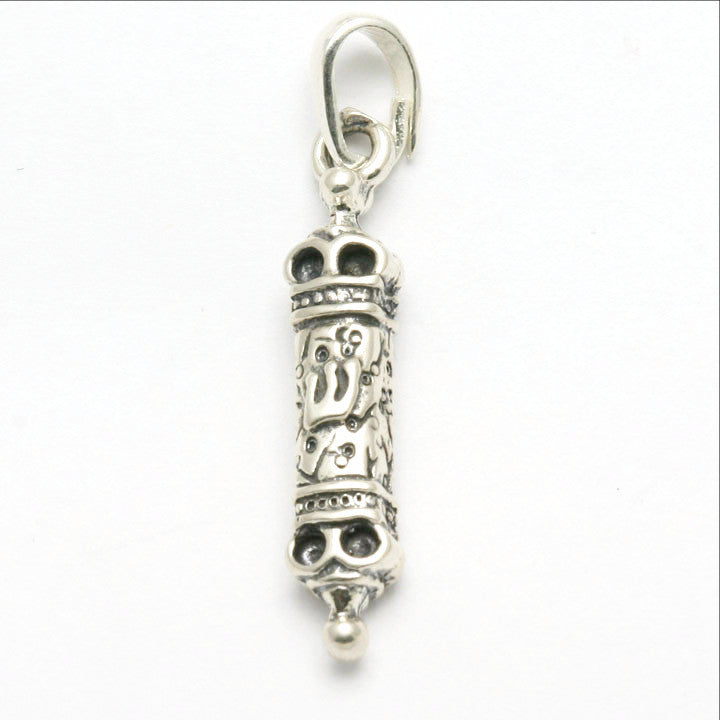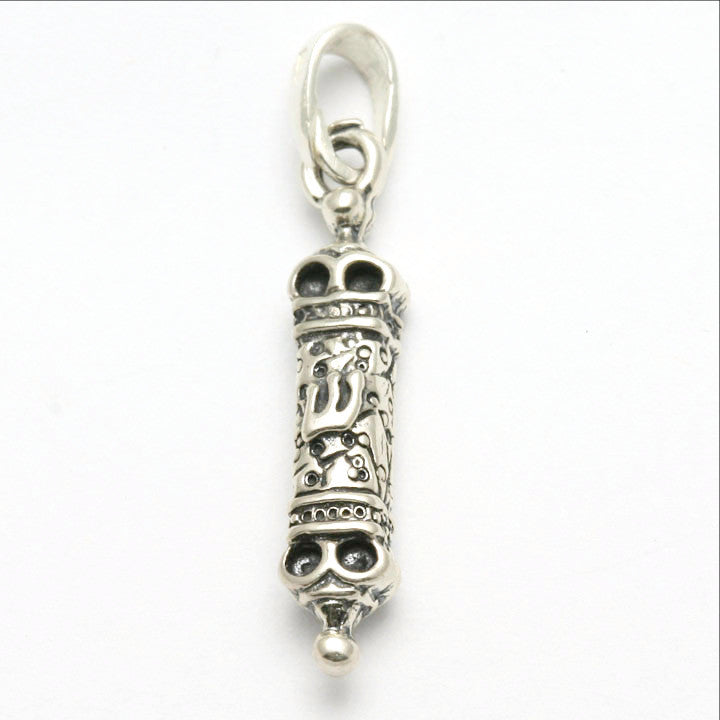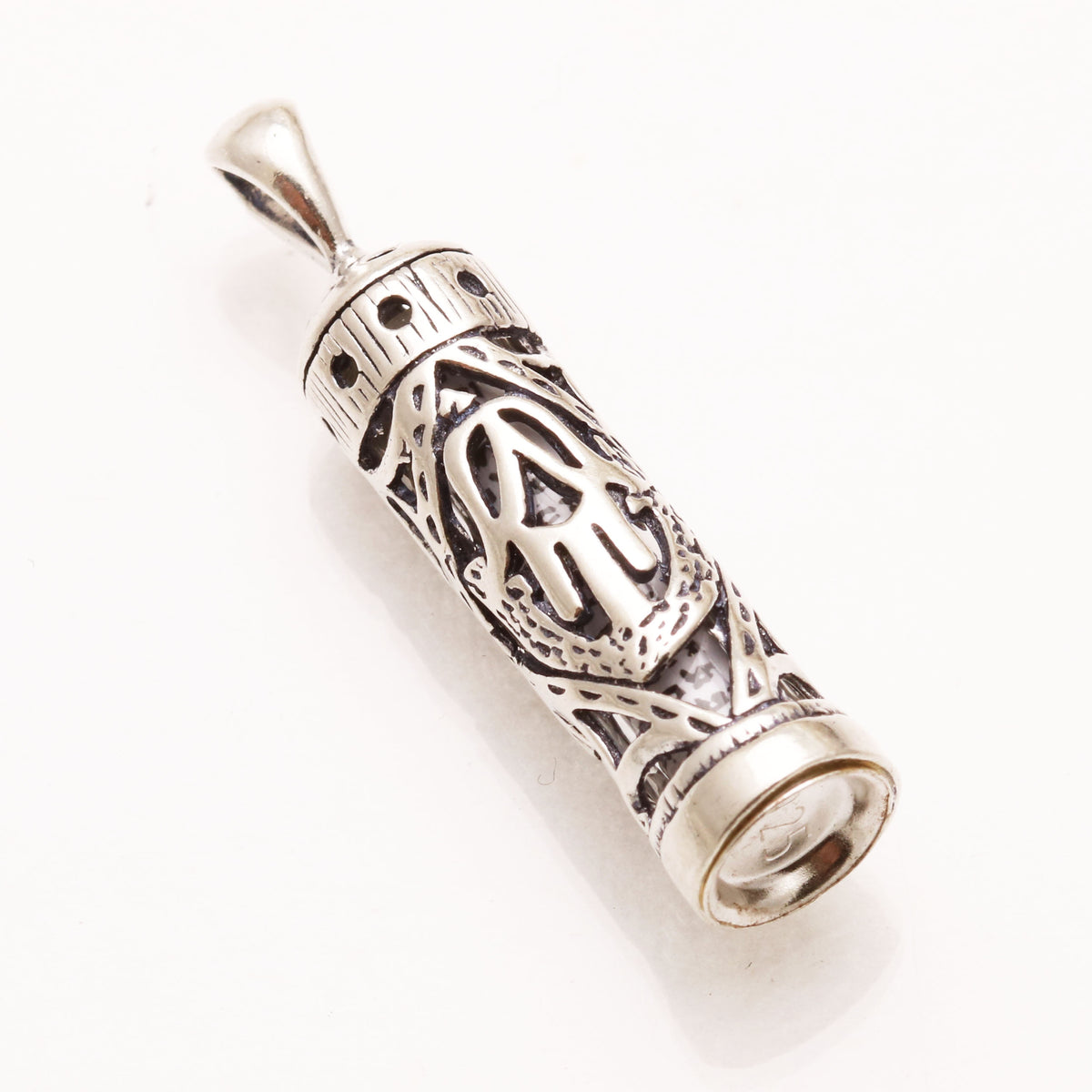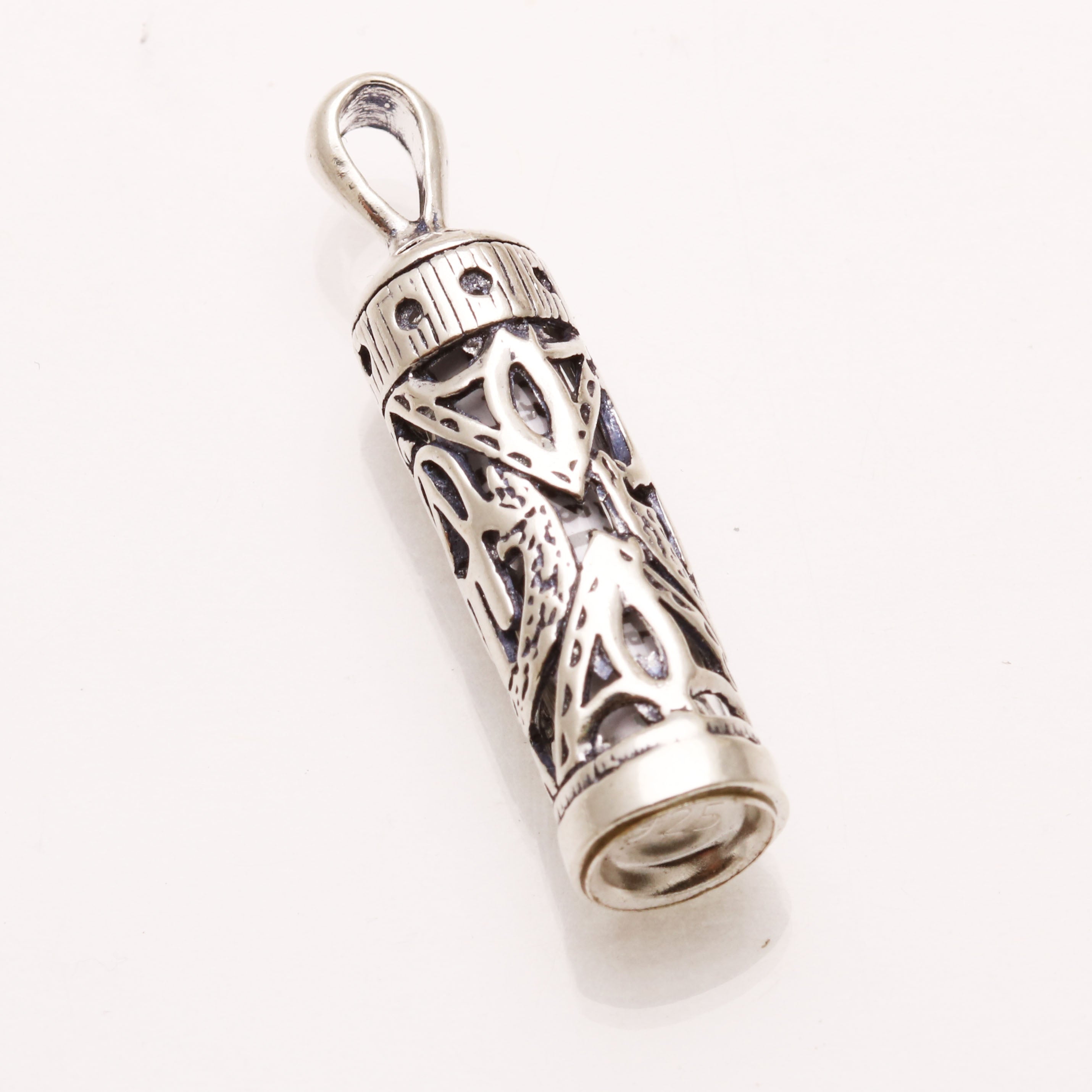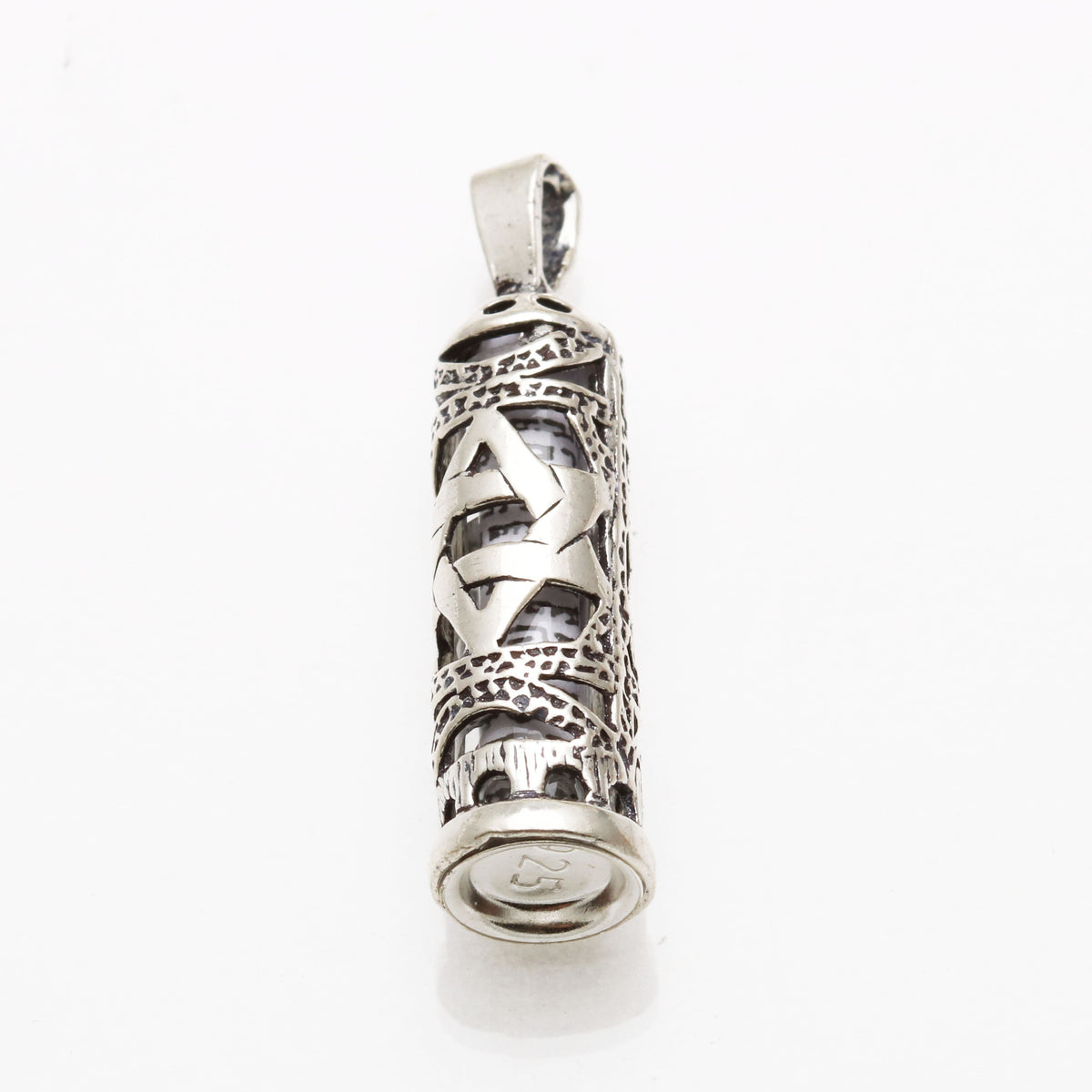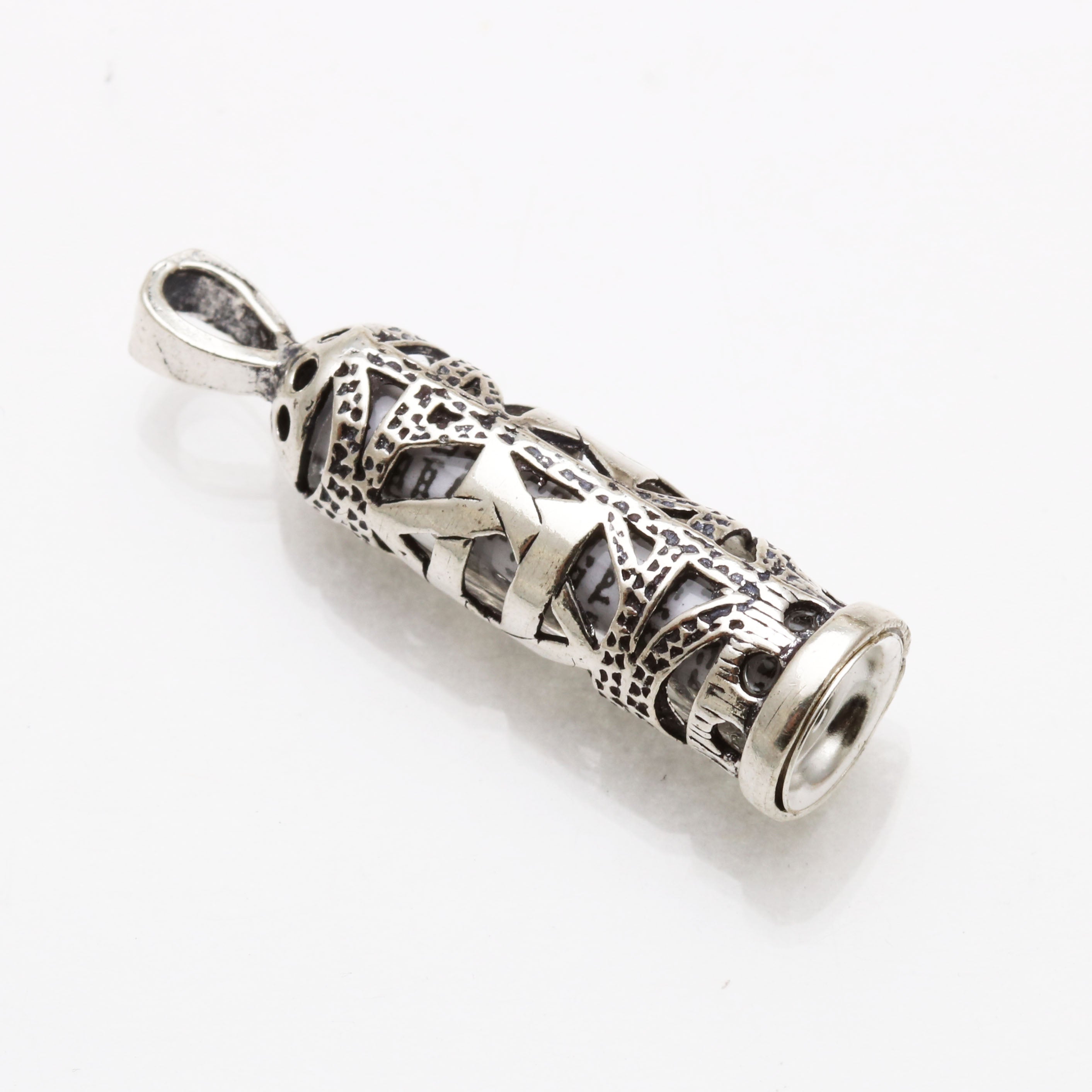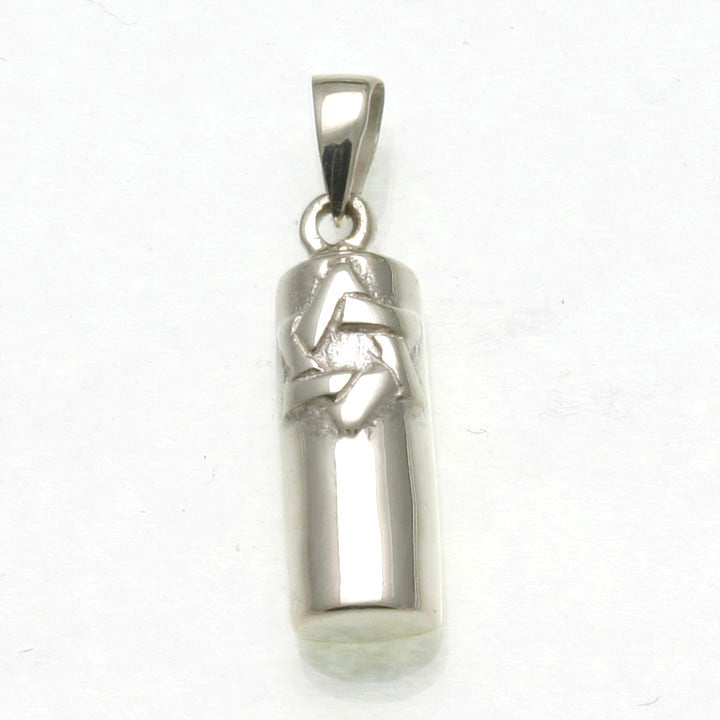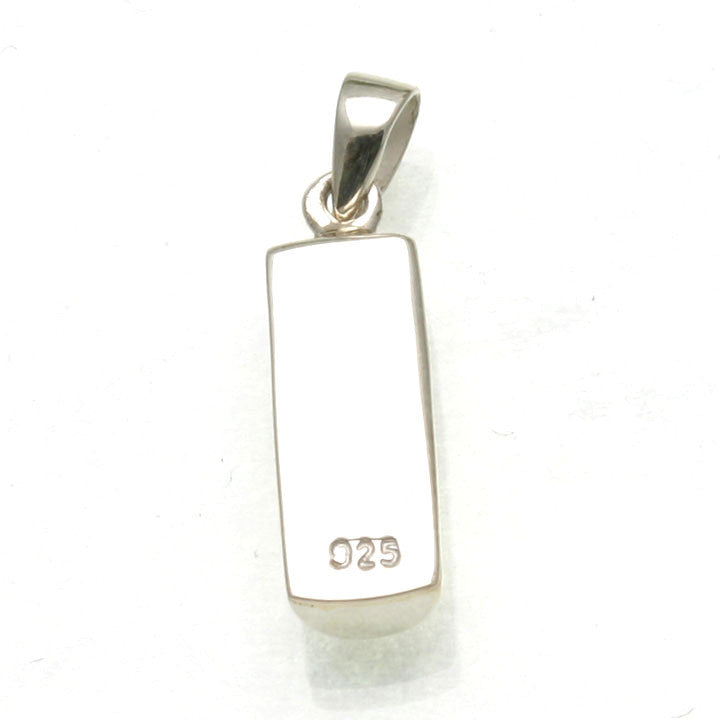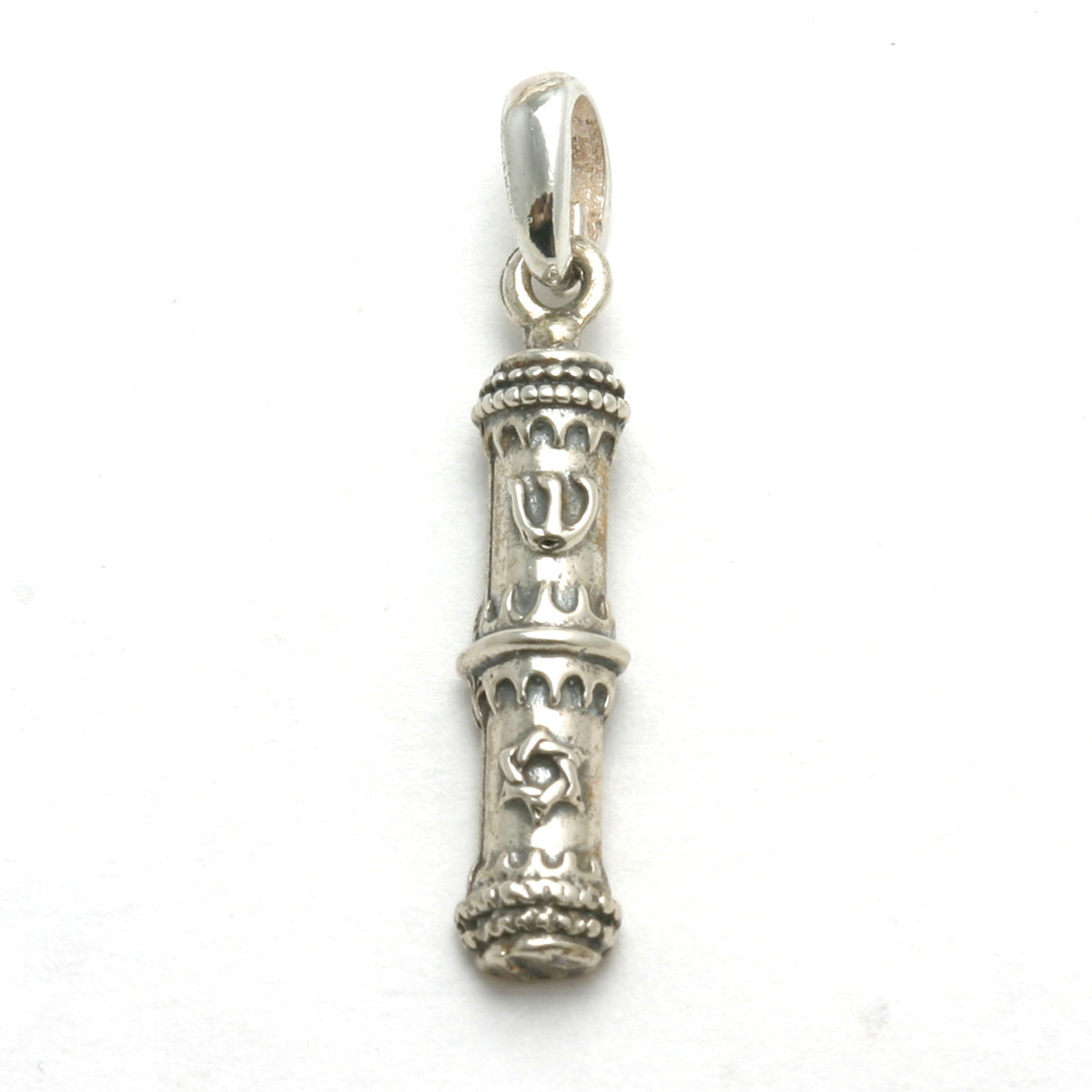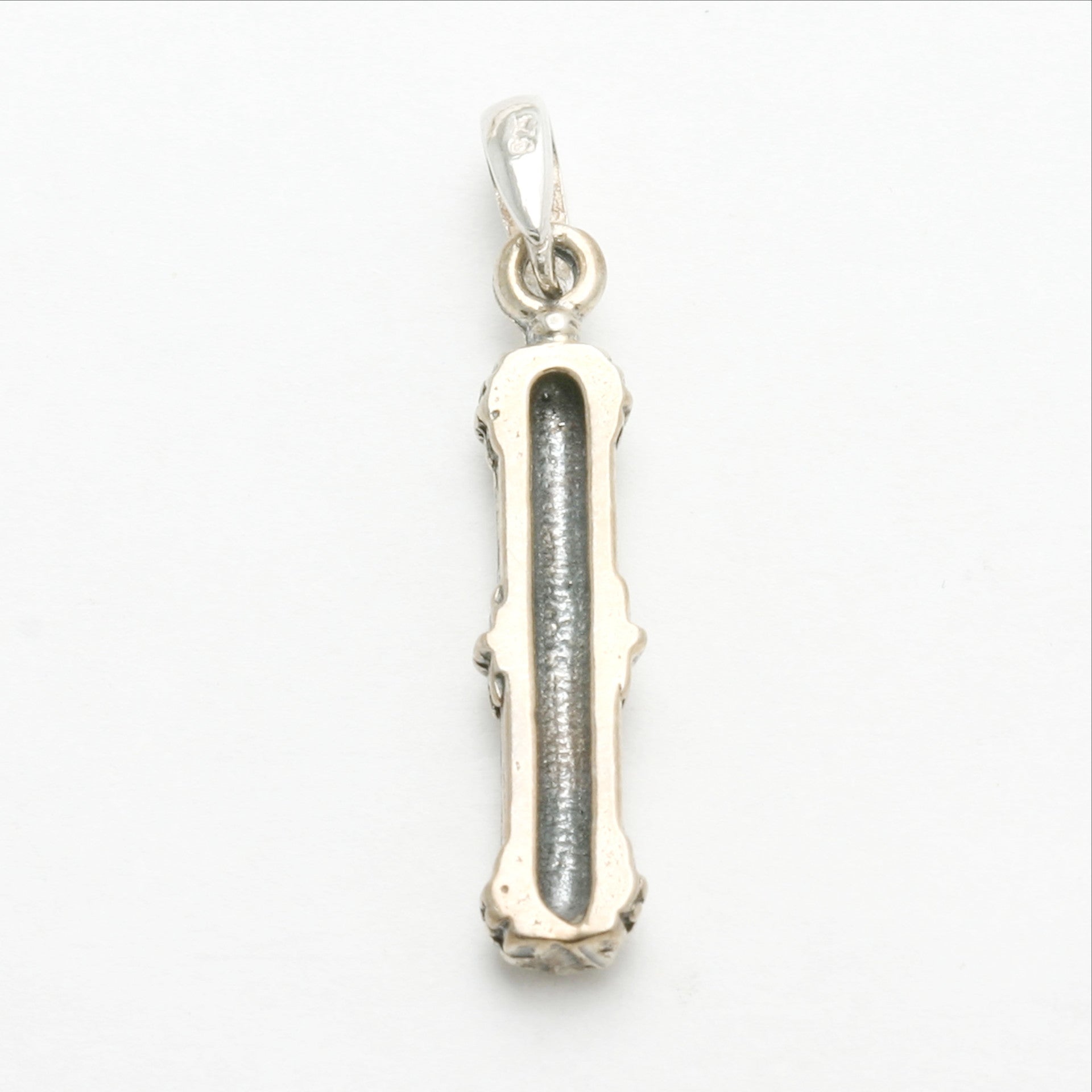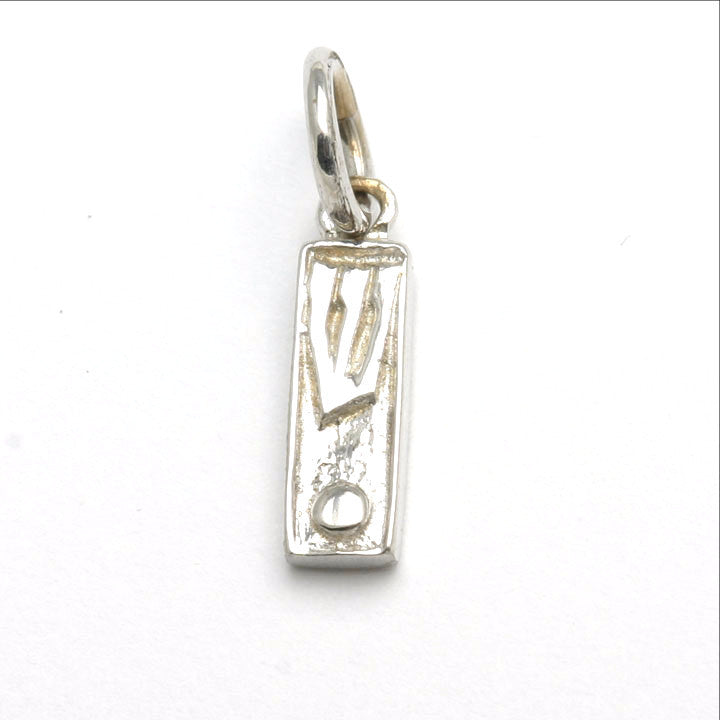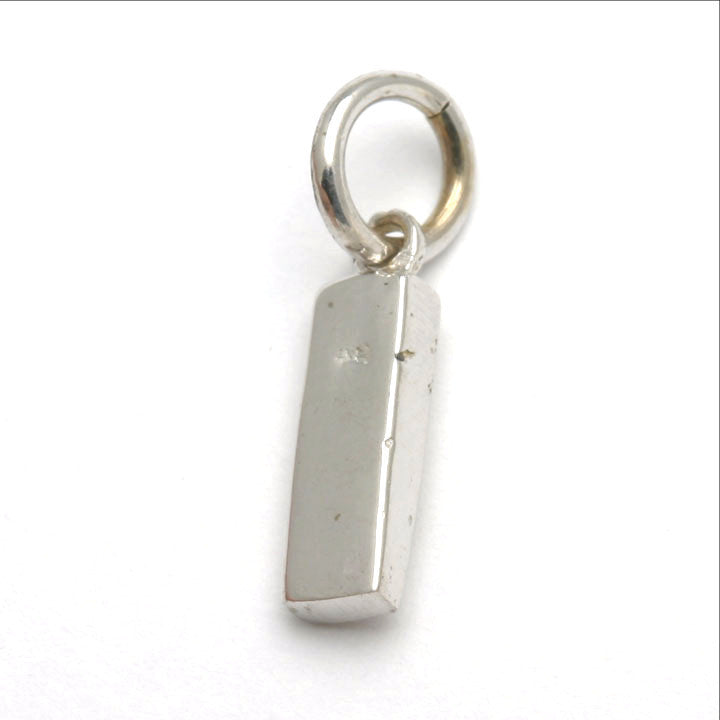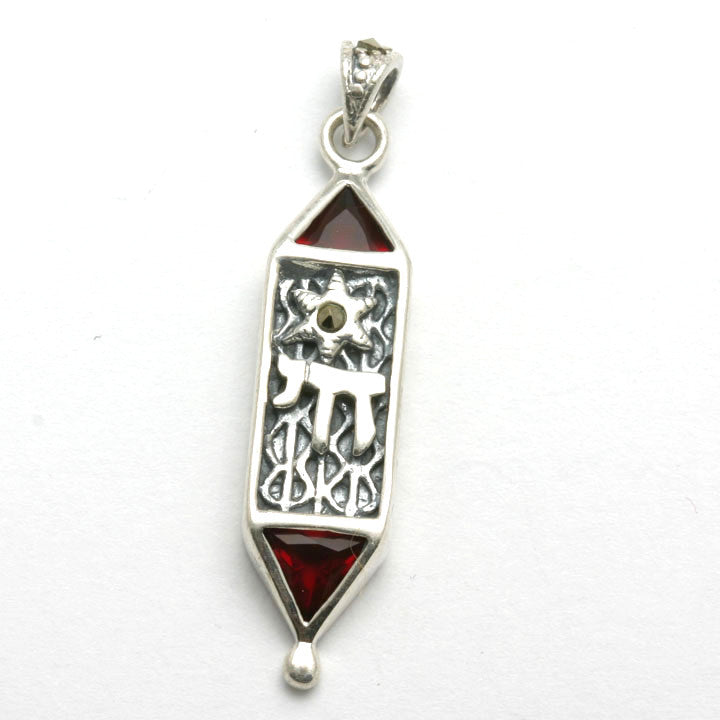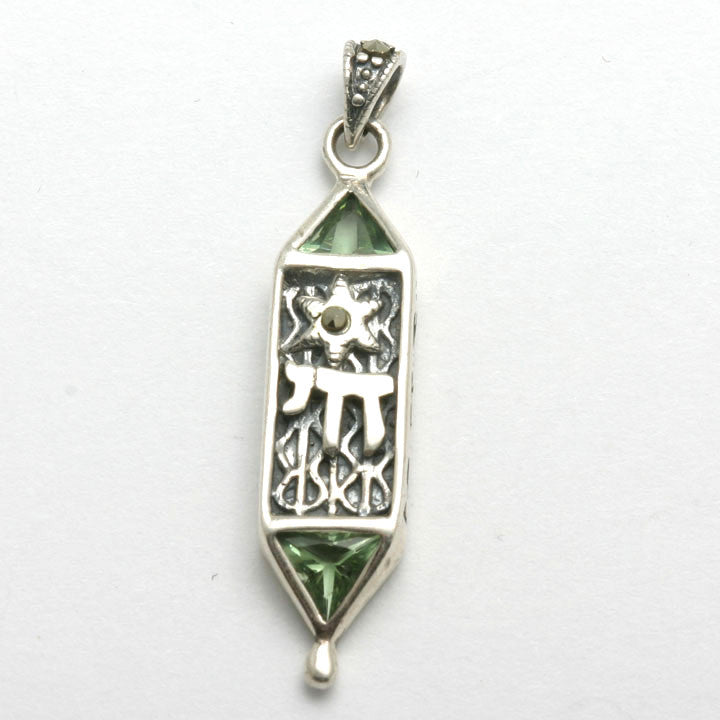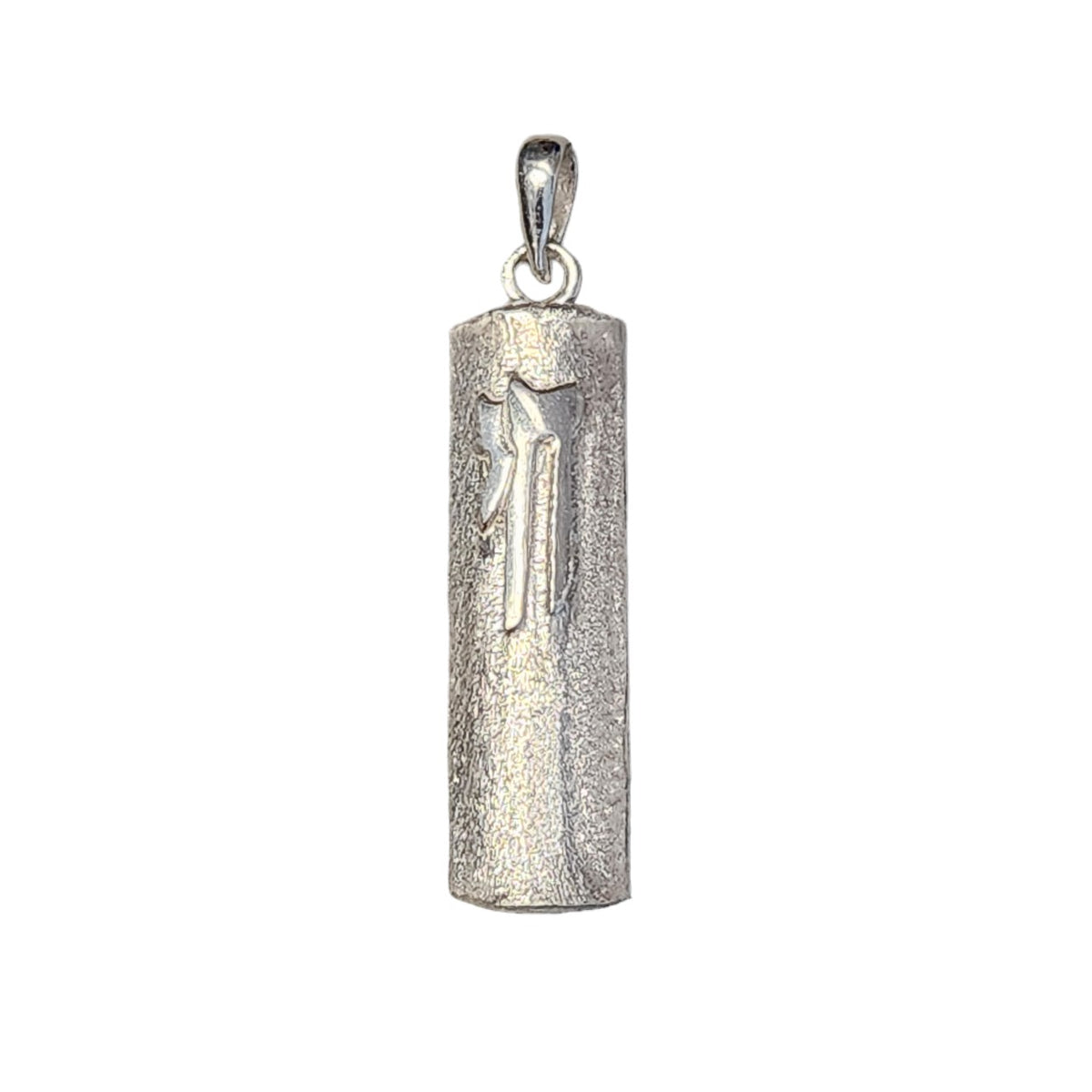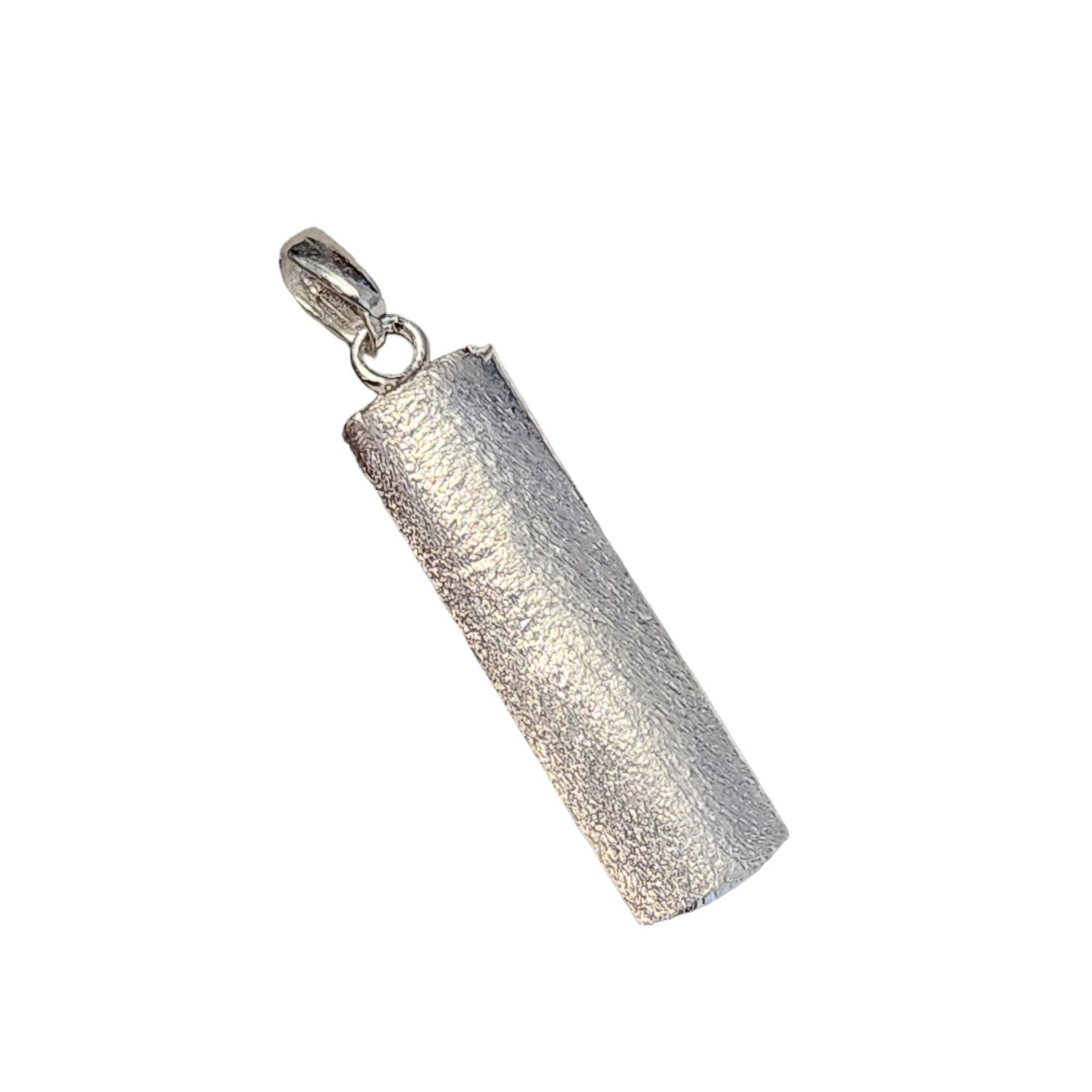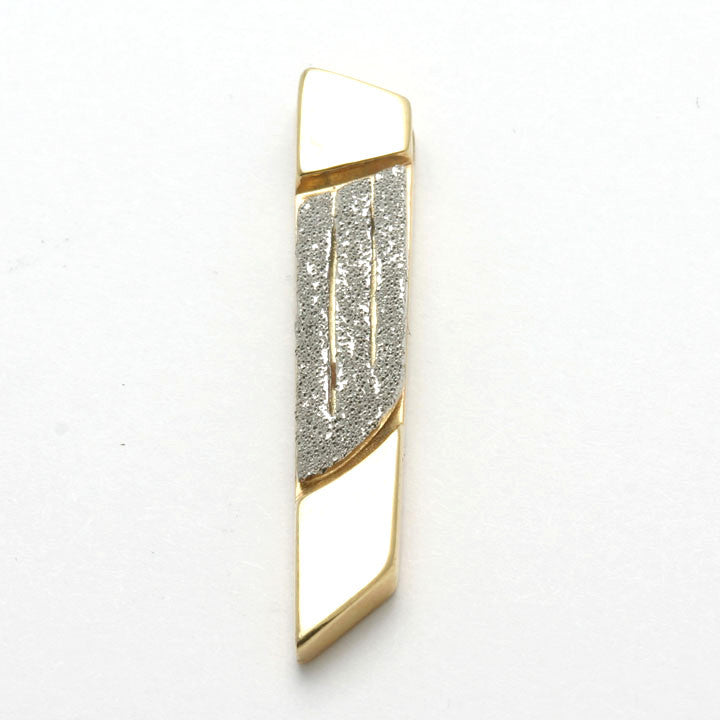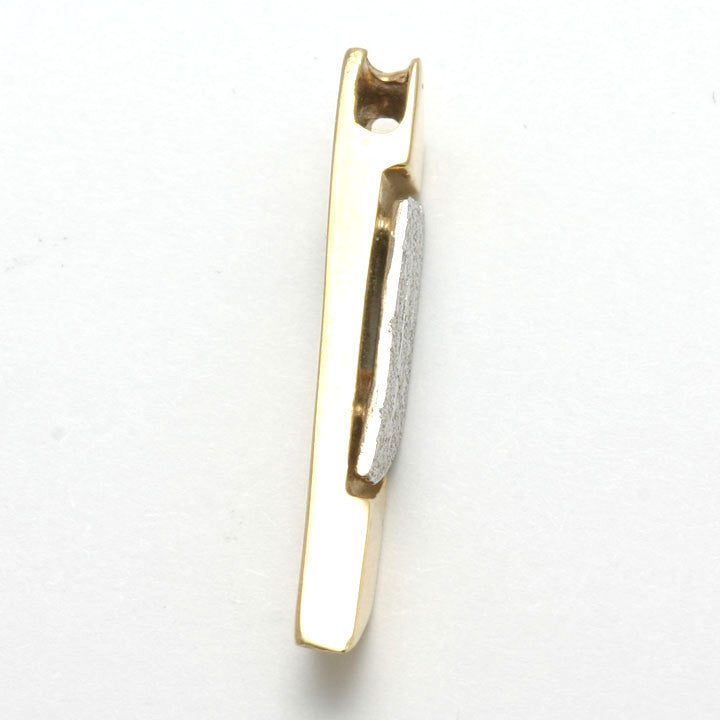Mezuzah Jewish Jewelry
The Torah tells Jews to affix mezuzahs to their door posts to remind them of G-d's presence and commandments in their daily lives. An actual mezuzah is a handwritten parchment paper housed inside an often beautiful protective case we typically see on a Jewish doorway. The mezuzah is said to protect the Jewish home. While only symbolic, mezuzah jewelry is also said to offer protection to those who wear it. Many mezuzah pendants have a “Shin” or “Shadai” written on the front. “Shadai” is one of the names of G-d and it is also an acronym for “Guardian of the doorways of Israel.”
Mezuzah FAQs
What is a Mezuzah?
Mezuzah is the Hebrew word for door post. It is the rectangular object found on the doorpost of Jewish homes. Mezuzah cases can come in many forms, some simple and some ornate but most importantly they contain a parchment scroll (Klaf) with 2 biblical passages from Deuteronomy. The Mezuzah distinguishes a Jewish home and is a reminder that the home is a holy place and you should act accordingly.
Which rooms need a mezuzah?
The front door and all interior doors of the house with the exception of bathrooms, closets and rooms too small to qualify as a room need a door mezuzah. The rule is that any room that is at least 4 cubits long by 4 cubits wide (approximately 6.3 feet by 6.3 feet) and has a full doorway requires a mezuzah. If you only have one mezuzah it should be placed on your front door. You can also have mezuzot in your office/place of work.
Do you take a mezuzah with you when you move?
It is customary to leave your mezuzot when you move if you know that the next occupant is Jewish. If you want to swap the cases out for other ones you may do so, as long as you leave the kosher scrolls up for the new tenant.
Why doesn’t my mezuzah pendant have a scroll?
A mezuzah pendant is a symbolic representation of the door mezuzah. It cannot have a kosher scroll in it because that would mean you would have to remove the pendant every time you entered a bathroom. You also would not be able to get the klaf wet. Therefore, the pendants generally do not contain a klaf, some might have a symbolic piece of parchment inside but it is not a kosher klaf.
Why do you kiss the mezuzah?
It is customary to touch the mezuzah then kiss your fingers when you enter into a room. The mezuzah serves as a reminder to live by the 613 commandments and that G-d is watching you. It has come to be a good luck ritual for many and the mezuzah is said to offer protection as well.
It a mezuzah good luck?
Many believe the mezuzah is good luck and offers protection to those who live in a house with a mezuzah. This dates back to the 10 plagues when G-d passed over all the houses with symbolic mezuzot in the killing of the first born. According to 13th century scholars, no demon has power over a house with a mezuzah. If a family has suffered bad luck or misfortune it is customary to check the mezuzah to make sure the klaf is still kosher and if you replace it you can change the energy in the house.
Where does a Mezuzah go?
The mezuzah is affixed to the right side of the door, approximately 1/3 of the way from the top of the door. In most traditions the mezuzah is slanted / angled inwards though some affix it straight on. Some people also have a car mezuzah which is more symbolic and has the travel blessing on it. The mezuzah is also a very popular design for a Jewish pendant or necklace.


